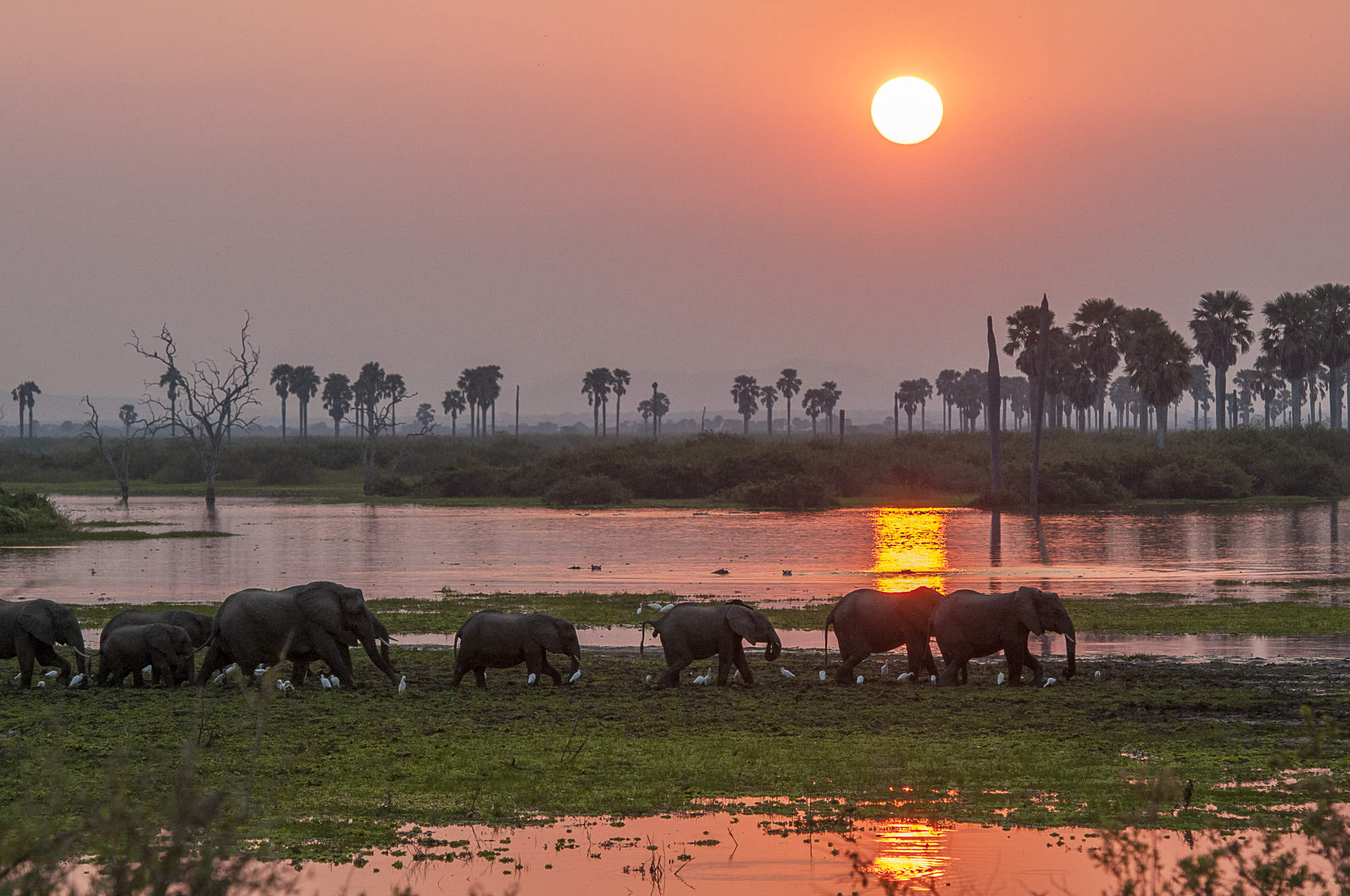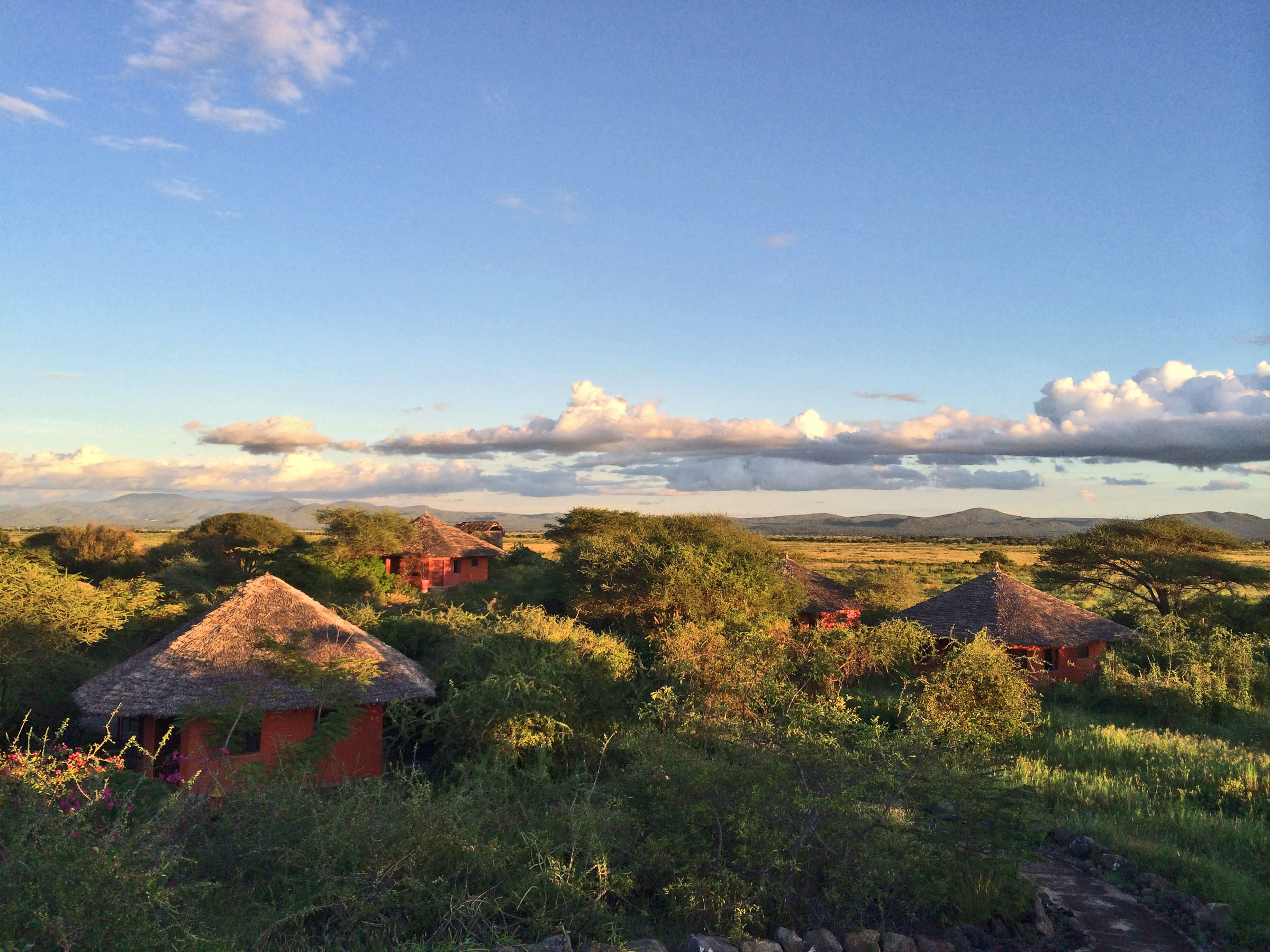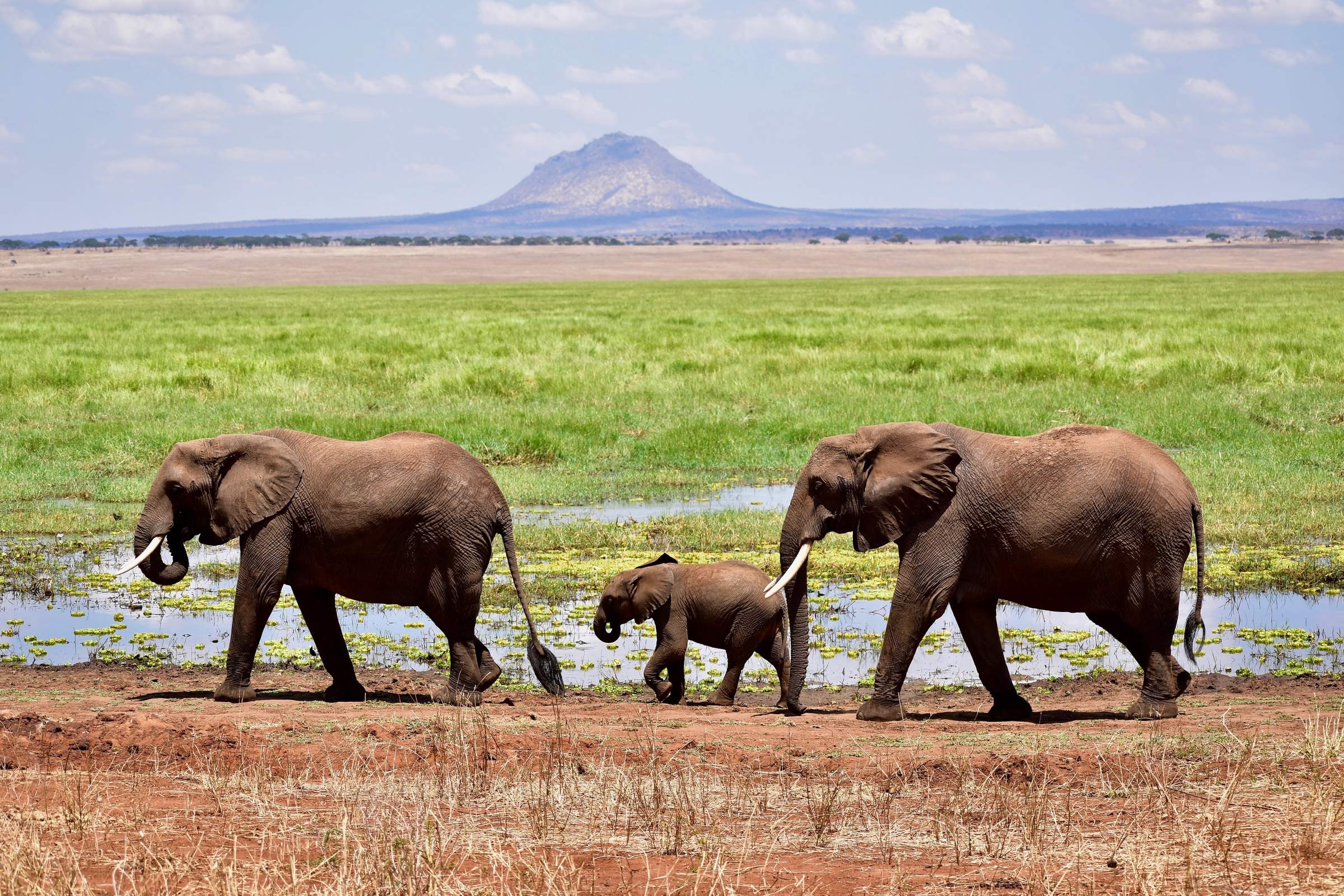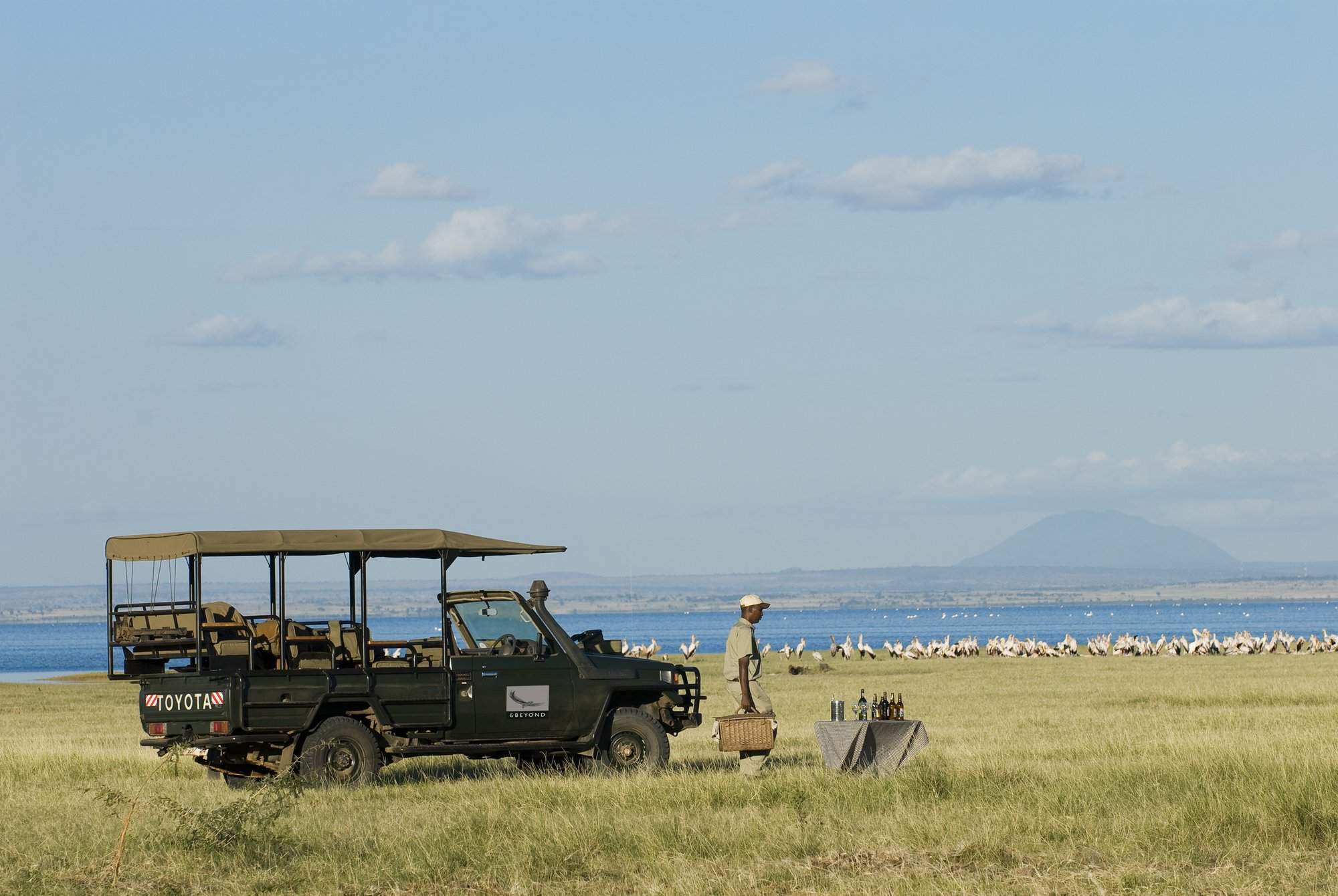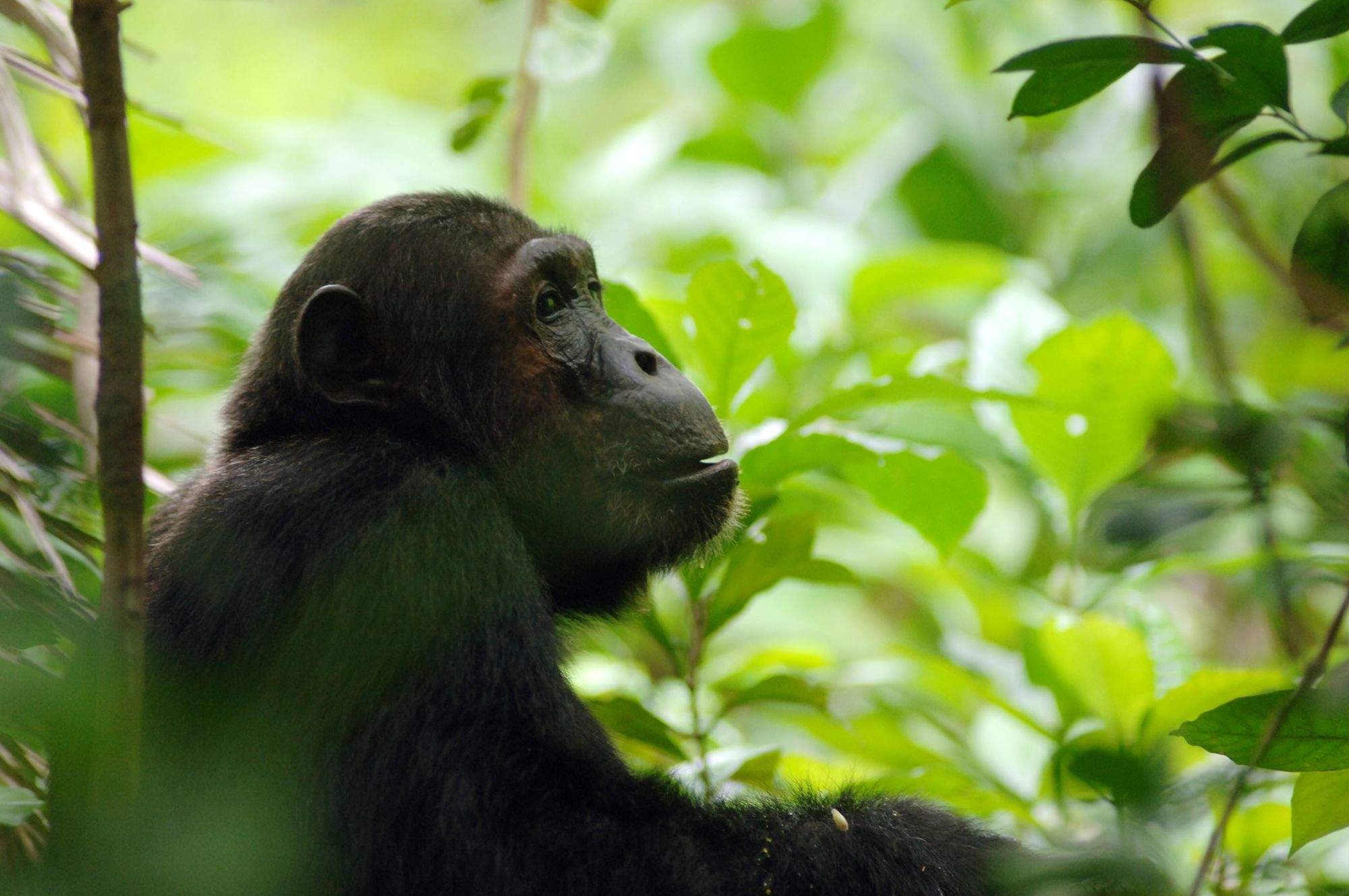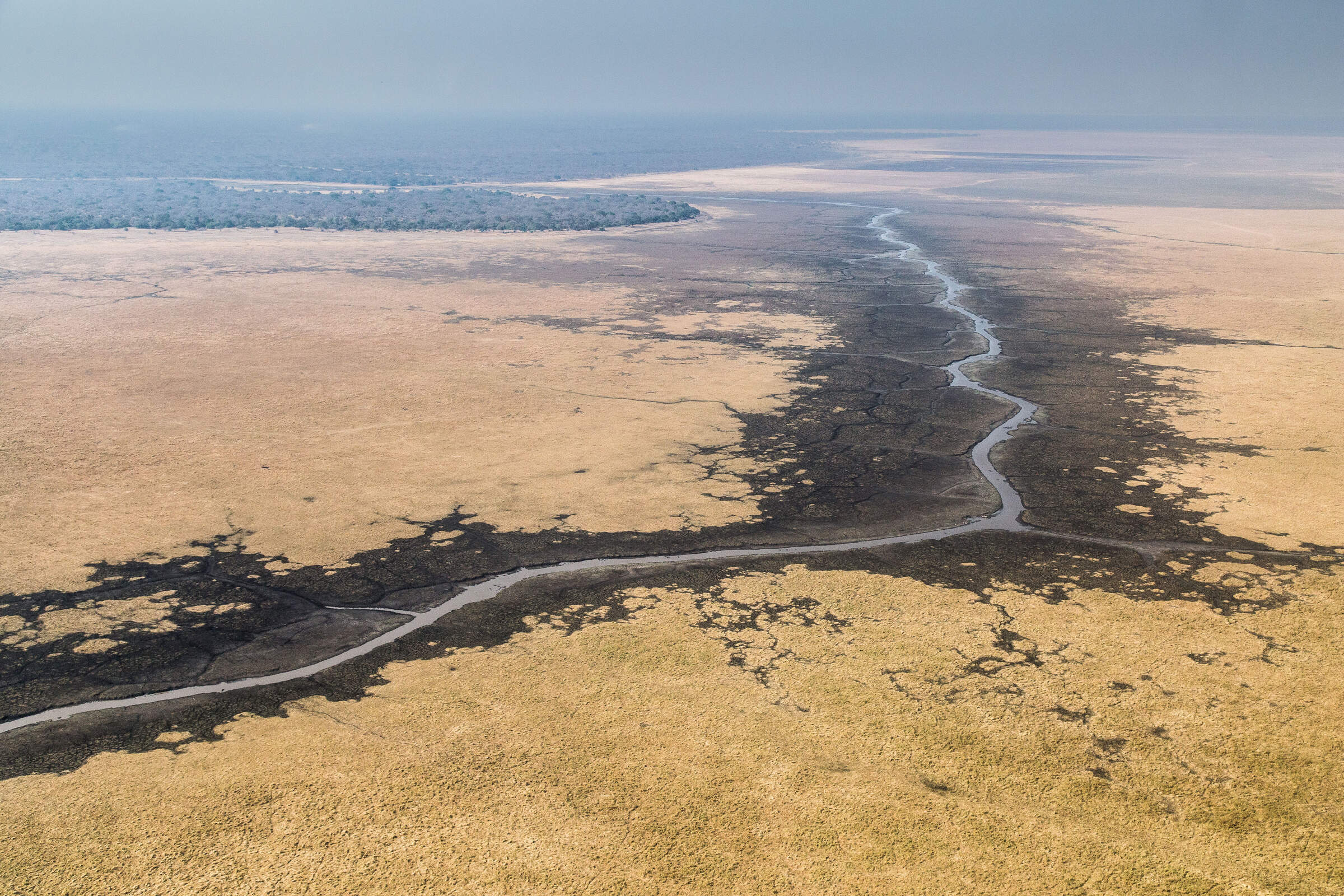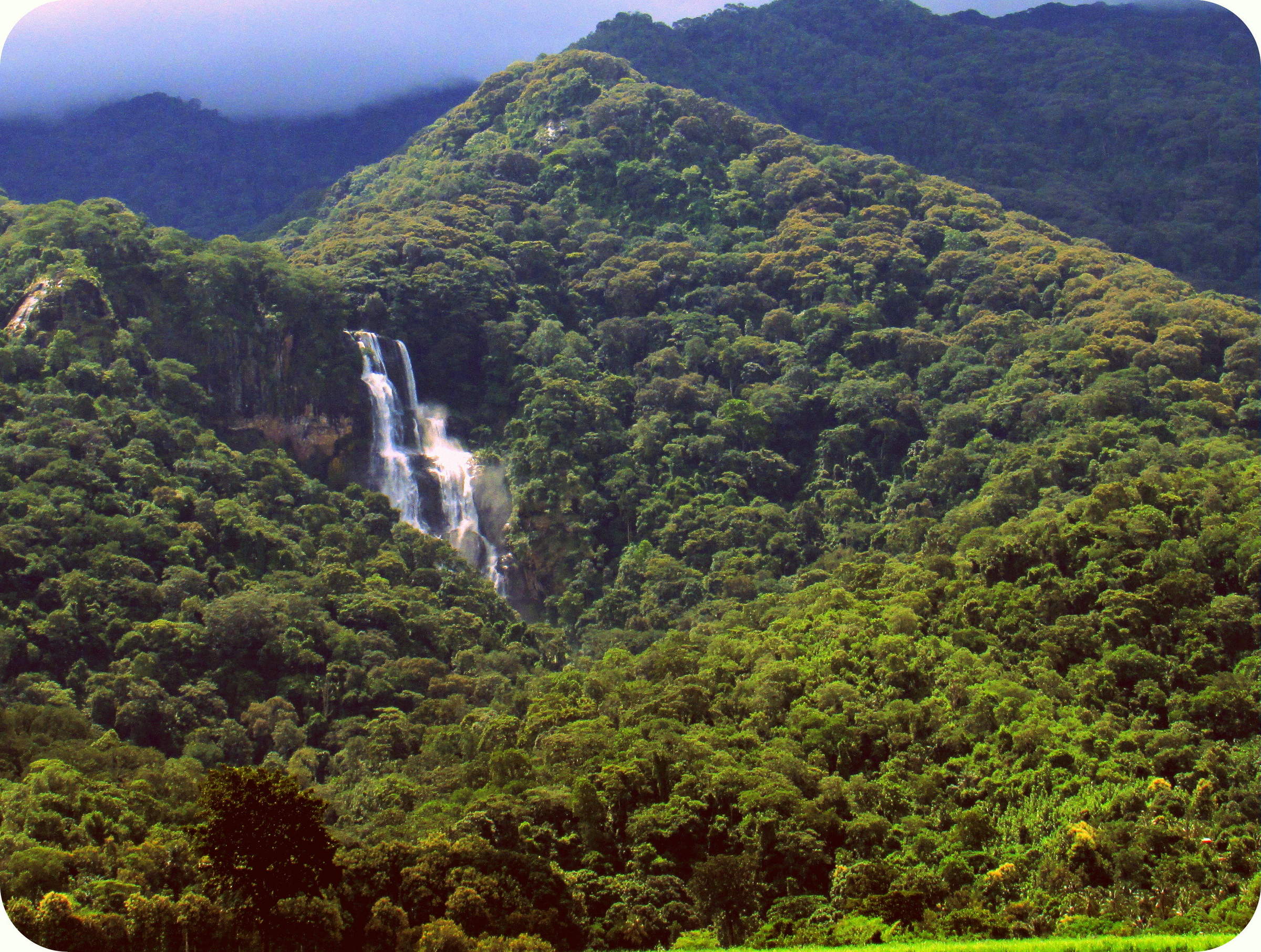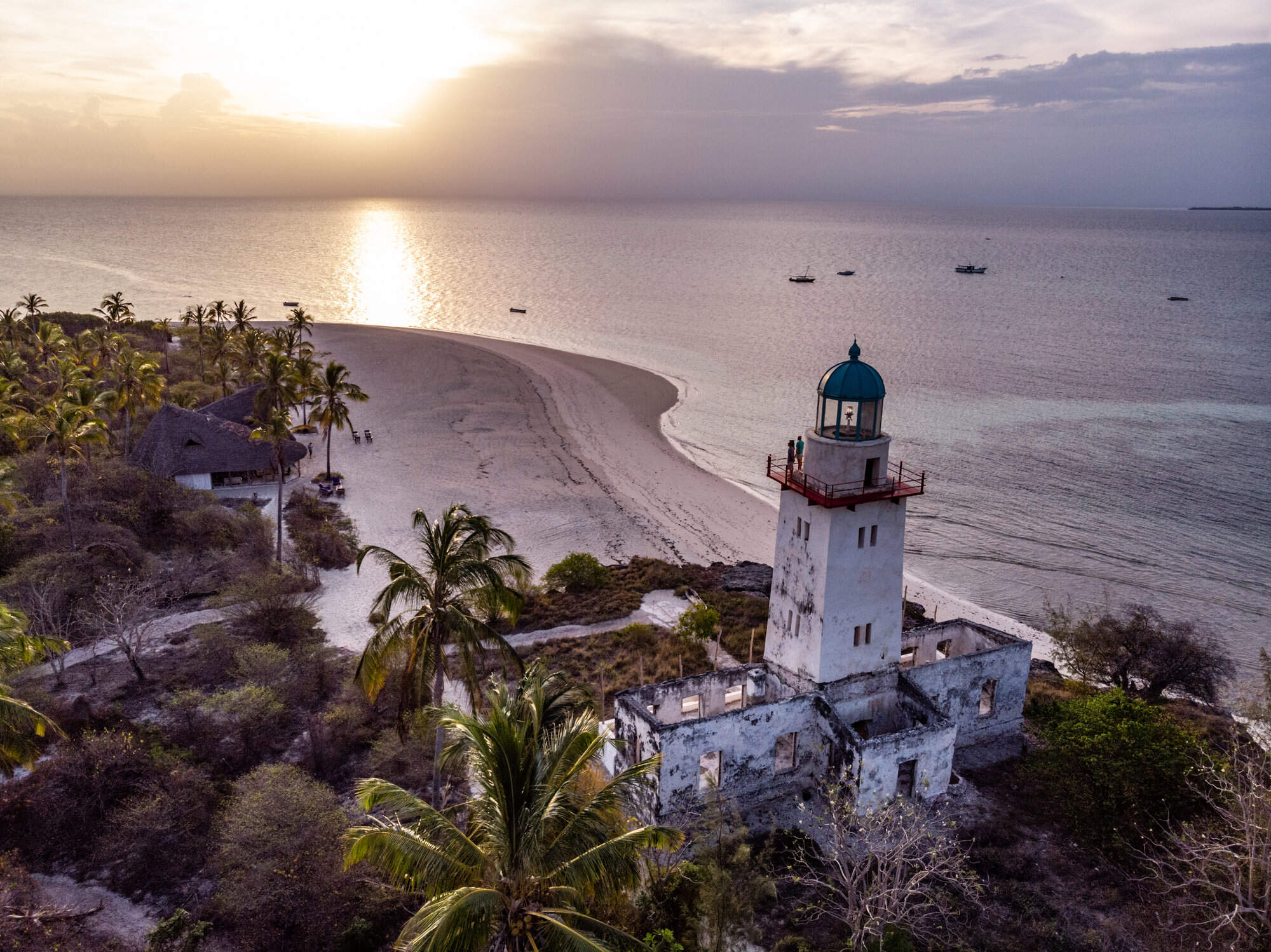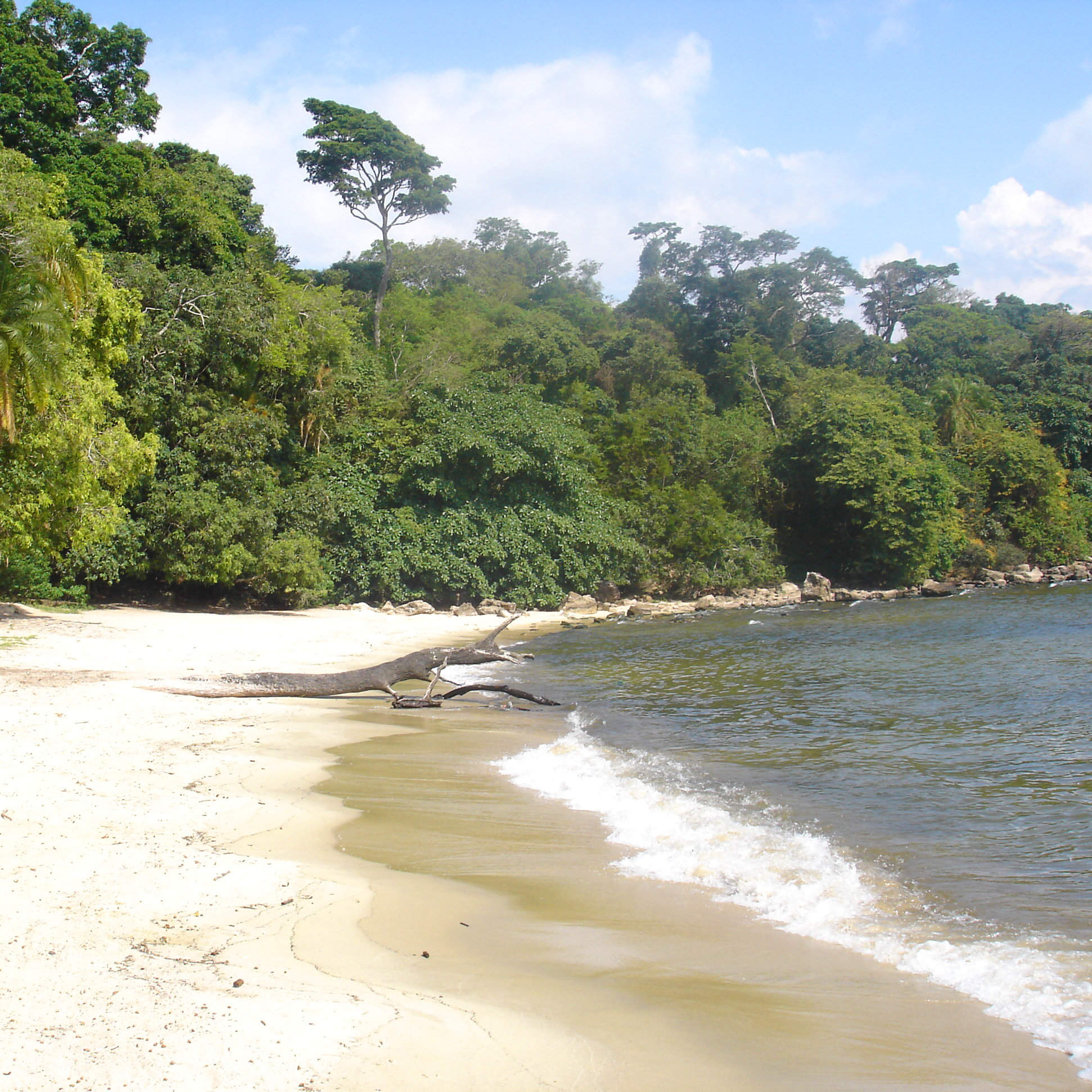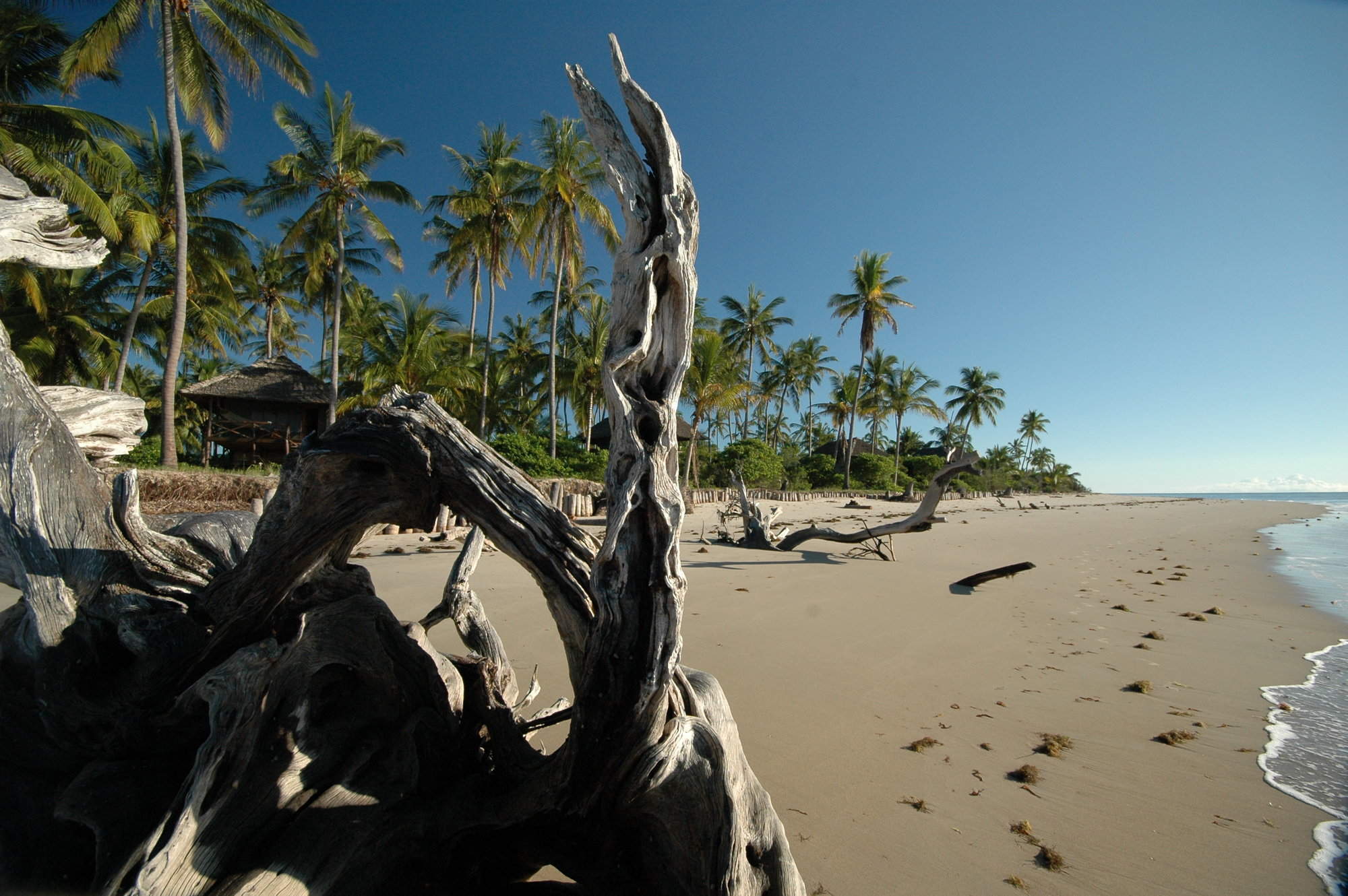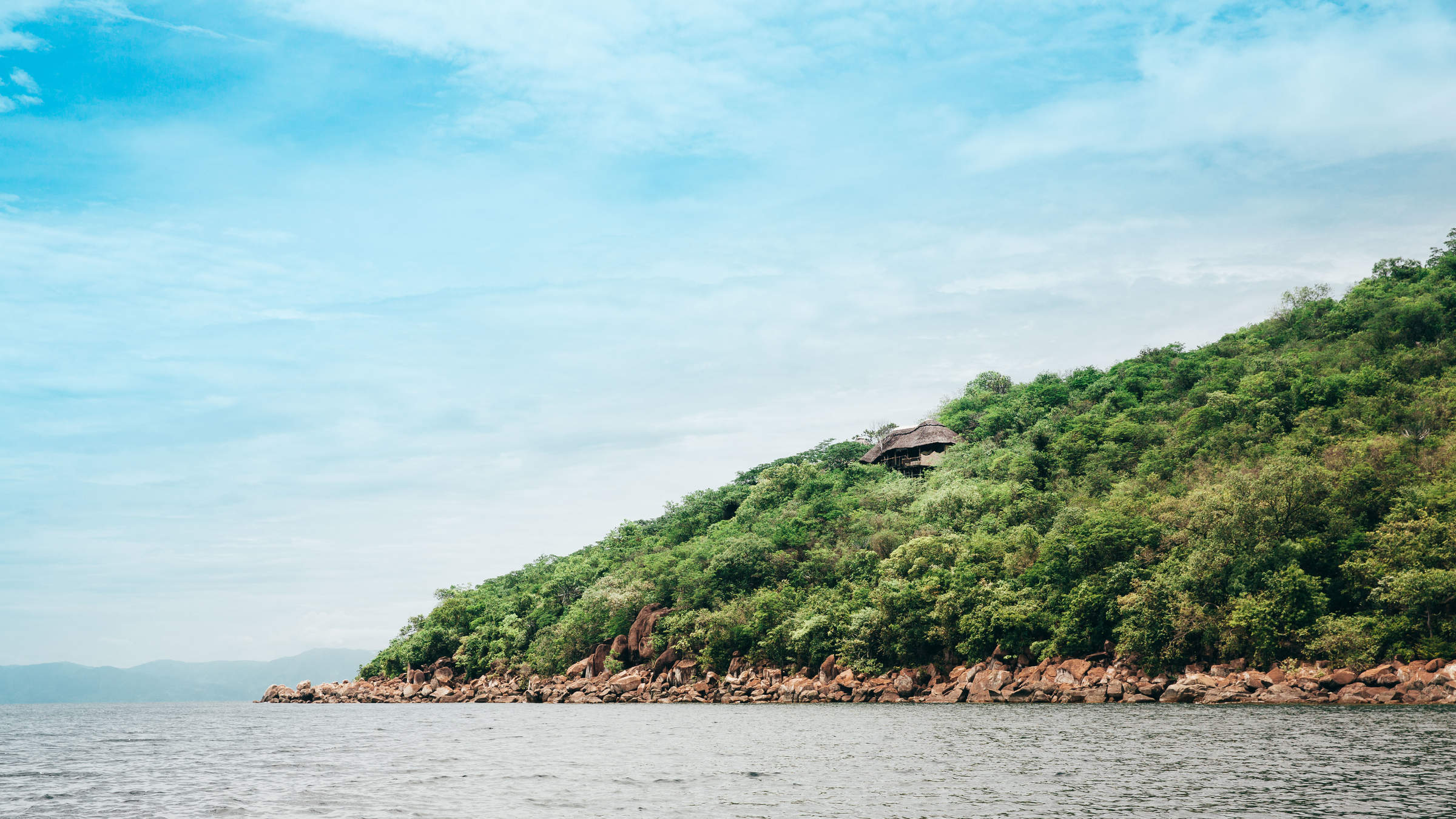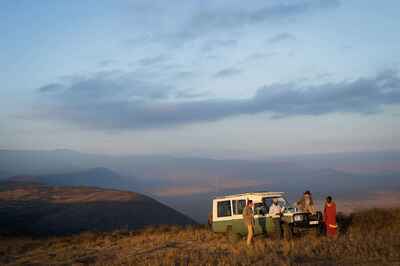
Safaris usually start early...
Ngorongoro Crater Lodge is a wonderful and unique accommodation option.
Ngorongoro offers rich wildlife rewards...
...and some great scenery.
The lake is a good spot for watching the birdlife.
...you may come across some lions...
...as well as large herds of zebra...
...and beautiful spots to admire the landscape.
You also may encounter some hippos while having a break by the lake.
Ngorongoro Crater
Ngorongoro Crater & Conservation Area
Like the Grand Canyon, nothing can quite prepare you for the moment you first stare into the Ngorongoro Crater.
Declared a UNESCO World Heritage Site in 1978, the Ngorongoro Crater has easily earned its fabled reputation as one Africa's greatest natural wonders. The habitats on the crater floor are diverse, the wildlife varied and the concentration of animals is especially dense.
Short-grass plains thrive on the mineral-rich soil of the bowl’s floor, providing nutritious grazing for numerous herbivores. These large, mixed herds in turn attract an impressive density of predators.
The variety of flora and fauna is so impressive here that rewarding sightings can be had almost anywhere: from the flamingo-fringed waters of Magadi soda lake to the leopard-frequented yellow fever trees of Lerai Forest. The only surprising absentees from the crater floor are giraffe and impala, but that is more than compenstaed for by good populations of eastern black rhino, large elephant herds and improving numbers of cheetahs.
There is no accommodation inside the Ngorongoro Crater itself, but you can access the crater floor from the lodges and camps dotted around the crater rim and further to the south on the Rift Valley escarpment slopes. Some of the lodges and camps overlooking the crater floor have spectacular views, but it's also worth considering their proximity to the crater’s entry points. The lodges and camps scattered further afield all make comfortable bases, and many are uniquely designed and full of character.
The various walking options in the Ngorongoro Conservation Area and around nearby Olduvai Gorge offer further, strong lures for visiting this area. Hiking areas include the Empakaai and Olmoti craters, both of which have breathtaking panoramic views. One of the world’s most important prehistoric sites, Olduvai Gorge, offers fascinating insights into the early species of human-like hominim who once lived there.

Safaris visiting Ngorongoro Crater
Just ideas, we'll always tailor-make a trip for you
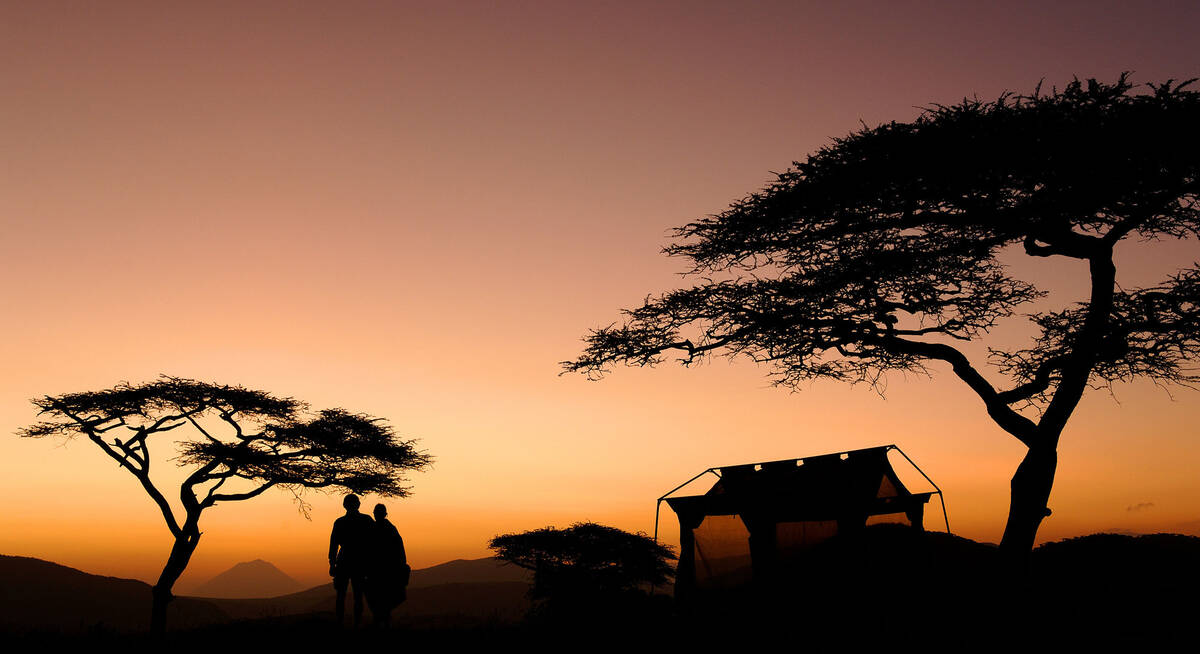
Firefinch Drive-Fly Safari
9 days • 3 locations
KILIMANJARO AIRPORT TO KILIMANJARO AIRPORT
Enjoy a combination of privately guided and shared game drives during this good-value exploration of northern Tanzania. Explore game-dense regions from three comfortable bases which offer a variety of activities.
US$7,720 - US$14,200 per person
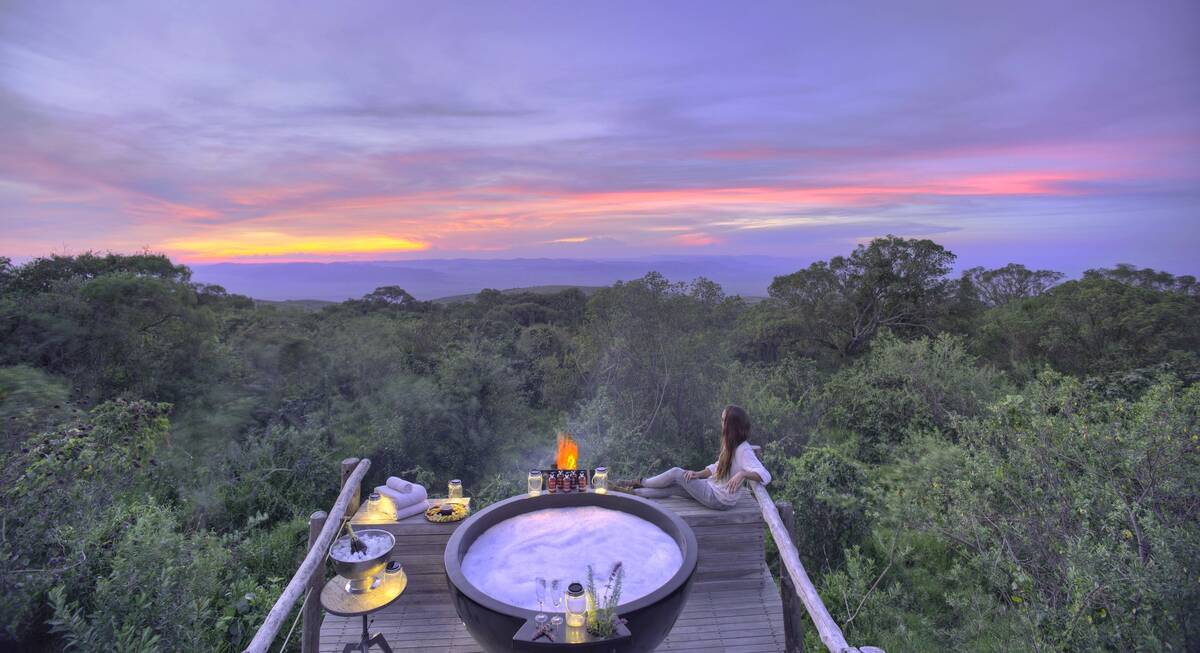
Flufftail Guided Safari
10 days • 3 locations
KILIMANJARO AIRPORT TO KILIMANJARO AIRPORT
Stay in three unique camps as you safari across the Ngorongoro Crater and the iconic Serengeti Plains with your private guide and 4WD vehicle: a trip of comfort and autonomy, with excellent wildlife.
US$12,990 - US$18,900 per person
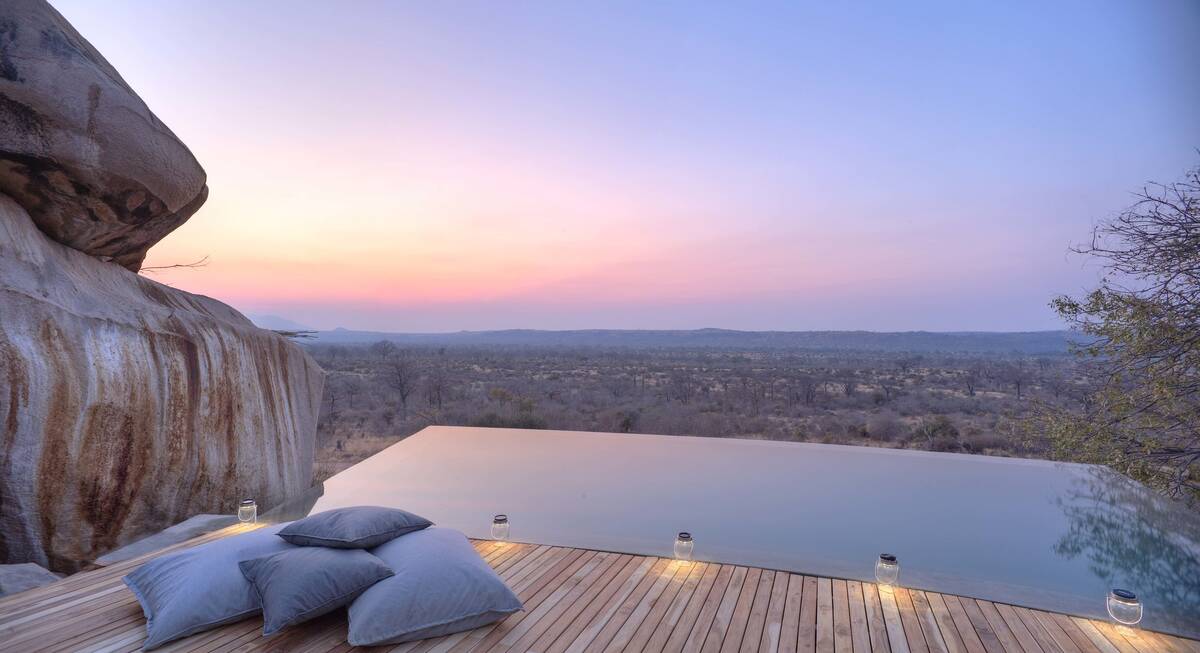
Marabou Stork Fly-in Safari
13 days • 5 locations
KILIMANJARO AIRPORT TO DAR ES SALAAM AIRPORT
Four luxurious camps enable exploration of Tanzania’s north and southern regions. With a range of land- and water-based activities available throughout, decidedly comfortable accommodation and applicable long-stay discounts, this adventurous safari is excellent value.
US$19,410 - US$25,560 per person

Gorillas and Serengeti Safari
11 days • 4 locations
KIGALI AIRPORT TO KILIMANJARO AIRPORT
Combine three iconic experiences – mountain gorillas in Rwanda, and the Serengeti plains and awe-inspiring Ngorongoro Crater in Tanzania.
US$14,310 - US$15,540 per person

Tinkerbird Fly-in Safari
8 days • 4 locations
KILIMANJARO AIRPORT TO KILIMANJARO AIRPORT
Explore Tanzania’s famous northern circuit in Tarangire National Park, the Ngorongoro Conservation Area and the Serengeti National Park. Four smart sister camps offer a high level of care, first-class guiding and a wide range of activities.
US$10,410 - US$14,140 per person

Fringe-eared Oryx Fly-in Safari
7 days • 3 locations
KILIMANJARO AIRPORT TO KILIMANJARO AIRPORT
Stay in three superbly positioned camps during this exploration of Tanzania’s famous northern circuit. Excellent views over the surrounding areas, relatively remote locations and game-rich habitat make for an exciting and varied safari experience.
US$7,300 - US$14,860 per person
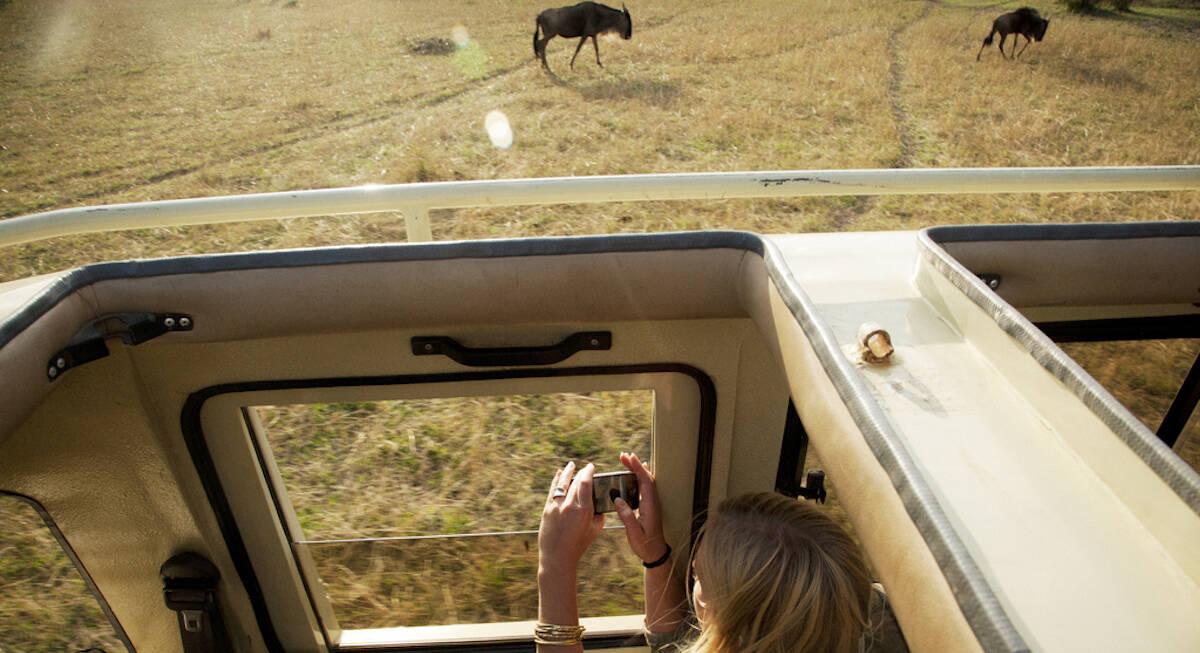
Regal Sunbird Fly-in Safari
12 days • 5 locations
KILIMANJARO AIRPORT TO DAR ES SALAAM AIRPORT
Experience the highlights of Tanzania with a safari in the country’s famous northern parks followed by historic Stone Town and the palm-fringed beaches of Zanzibar, staying in high-quality accommodation throughout.
US$10,570 - US$16,370 per person

Lovebird Fly-in Safari
5 days • 2 locations
KILIMANJARO AIRPORT TO KILIMANJARO AIRPORT
Visit two consistently impressive wildlife destinations during this excellent-value safari in northern Tanzania. Enjoy a range of walks and cultural visits from sister camps at the Ngorongoro Crater and in the heart of the Serengeti.
US$3,520 - US$4,900 per person
Most recent reviews of our safaris to Ngorongoro Crater
Click below to browse all 301 reviews from Ngorongoro Crater. All from our travellers; all are in full & unedited.
Arrived 27 Jan 2025, 9 nights
"My Jan 2025 trip"
Overall rating: Excellent
Arrived 12 Jan 2025, 11 nights
"My Jan 2025 trip"
Overall rating: Excellent
Arrived 16 Dec 2024, 5 nights
"My Dec 2024 trip"
Overall rating: Excellent
Arrived 9 Nov 2024, 16 nights
"My Nov 2024 trip"
Overall rating: Excellent
Arrived 24 Sep 2024, 14 nights
"My Sep 2024 trip"
Overall rating: Excellent
Arrived 18 Sep 2024, 10 nights
"My Sep 2024 trip"
Overall rating: Excellent
Arrived 15 Sep 2024, 24 nights
"Our Sep 2024 trip"
Overall rating: Excellent
Arrived 14 Aug 2024, 12 nights
"My Aug 2024 trip"
Overall rating: Excellent
Arrived 13 Aug 2024, 9 nights
"My Aug 2024 trip"
Overall rating: Excellent
Arrived 25 Jul 2024, 13 nights
"My Jul 2024 trip"
Overall rating: Excellent
Where to stay in Ngorongoro Crater
There is no accommodation within the Ngorongoro Crater and so generally speaking there are two different options; either staying on the Crater rim or on the Rift Valley Escarpment.
There is a collection of lodges perched on the Crater rim overlooking the floor. These lodges tend to have incredible views and easy access to the crater, however the prices reflect this. These lodges are much larger and also benefit from an exceptional view, however their size means they’re lacking in the character you can find elsewhere. There are a handful of other lodges and camps in the hills of the Crater, which do not have the views but are still extremely convenient and are also more affordable.
Alternatively you could choose to stay on the nearby Rift Valley Escarpment in an area often referred to as Karatu. The lodges and camps here are all less than about 20km from the Crater and have a lot more character than the aforementioned lodges.
For more information speak to one of our Tanzania specialists.
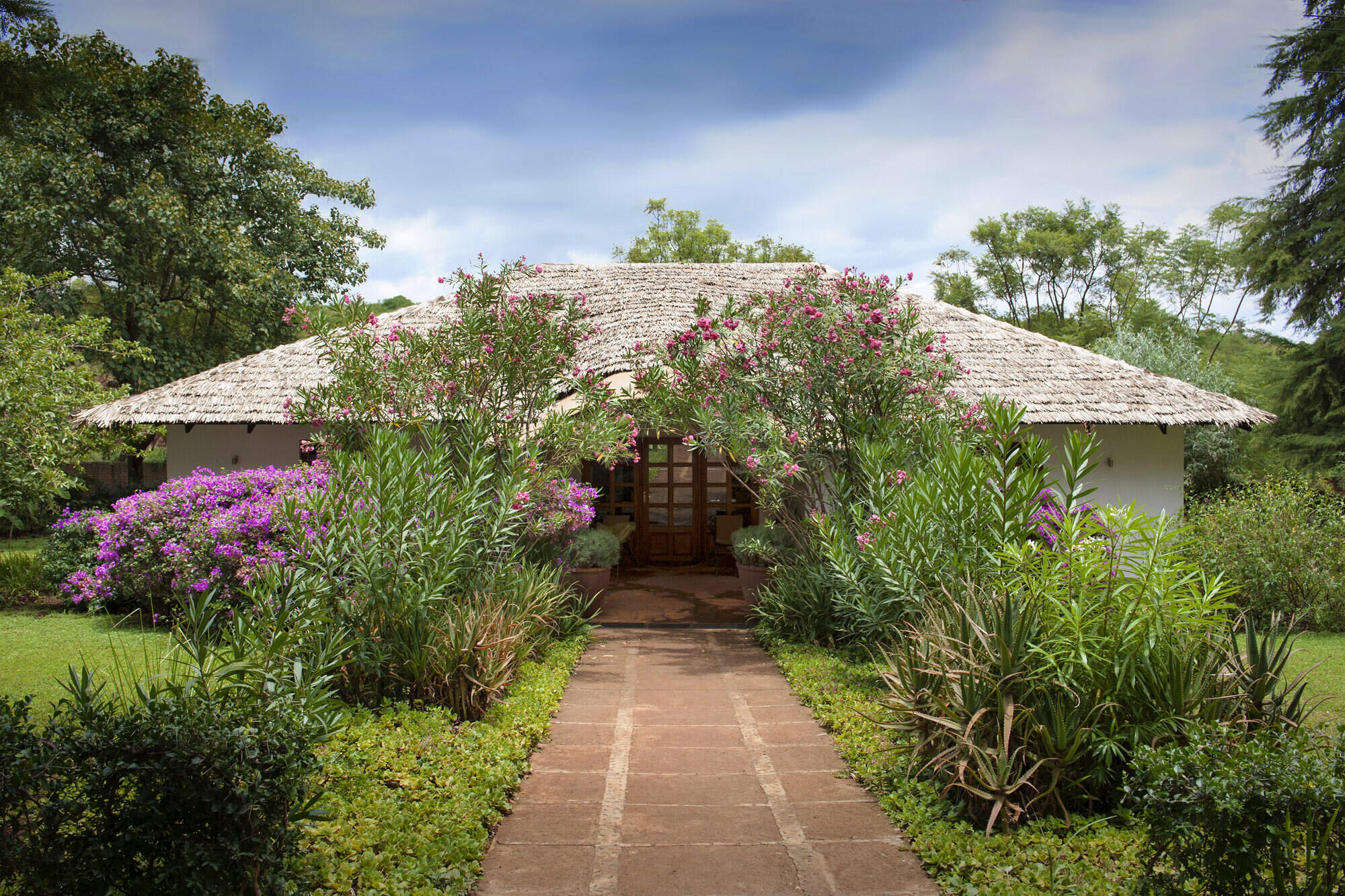
Plantation Lodge
A relaxed base between Ngorongoro and Lake Manyara, Plantation Lodge has lush grounds and offers good value and high standards.

Gibbs Farm
Located not far from the Ngorongoro Conservation Area, Gibb's Farm has comfy rooms, homegrown food and strong community links
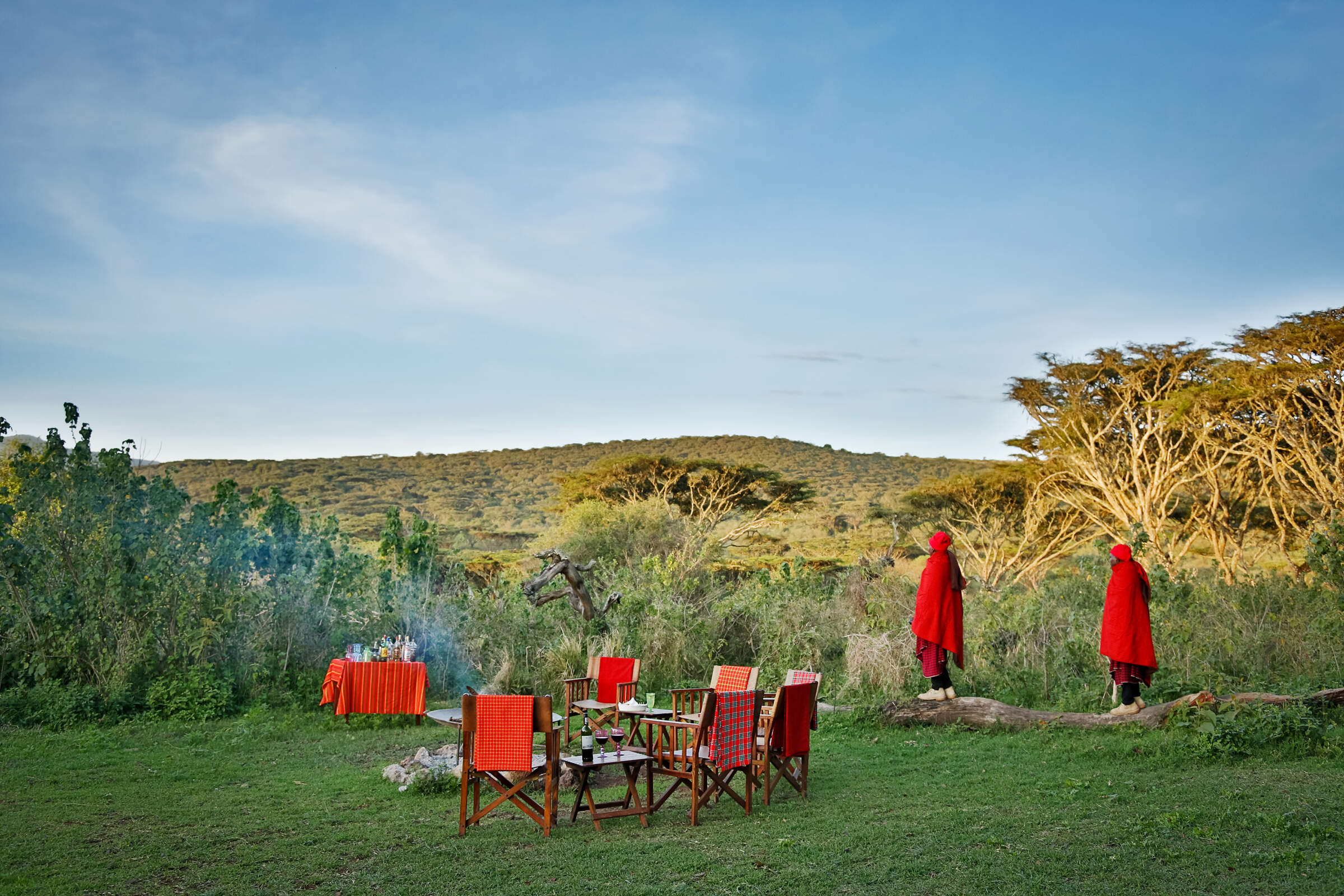
Lemala Ngorongoro
Lemala Ngorongoro is a small, comfortable tented camp on the rim of the Ngorongoro Crater with lovely walking in the vicinity.

Entamanu Ngorongoro
Opened in 2016, Entamanu Ngorongoro is a small camp high on the Crater rim with views towards the crater and the plains of the Serengeti.

Crater Lodge
The ultra-luxurious Ngorongoro Crater Lodge is perched in a spectacular location on the edge of the Ngorongoro Crater.
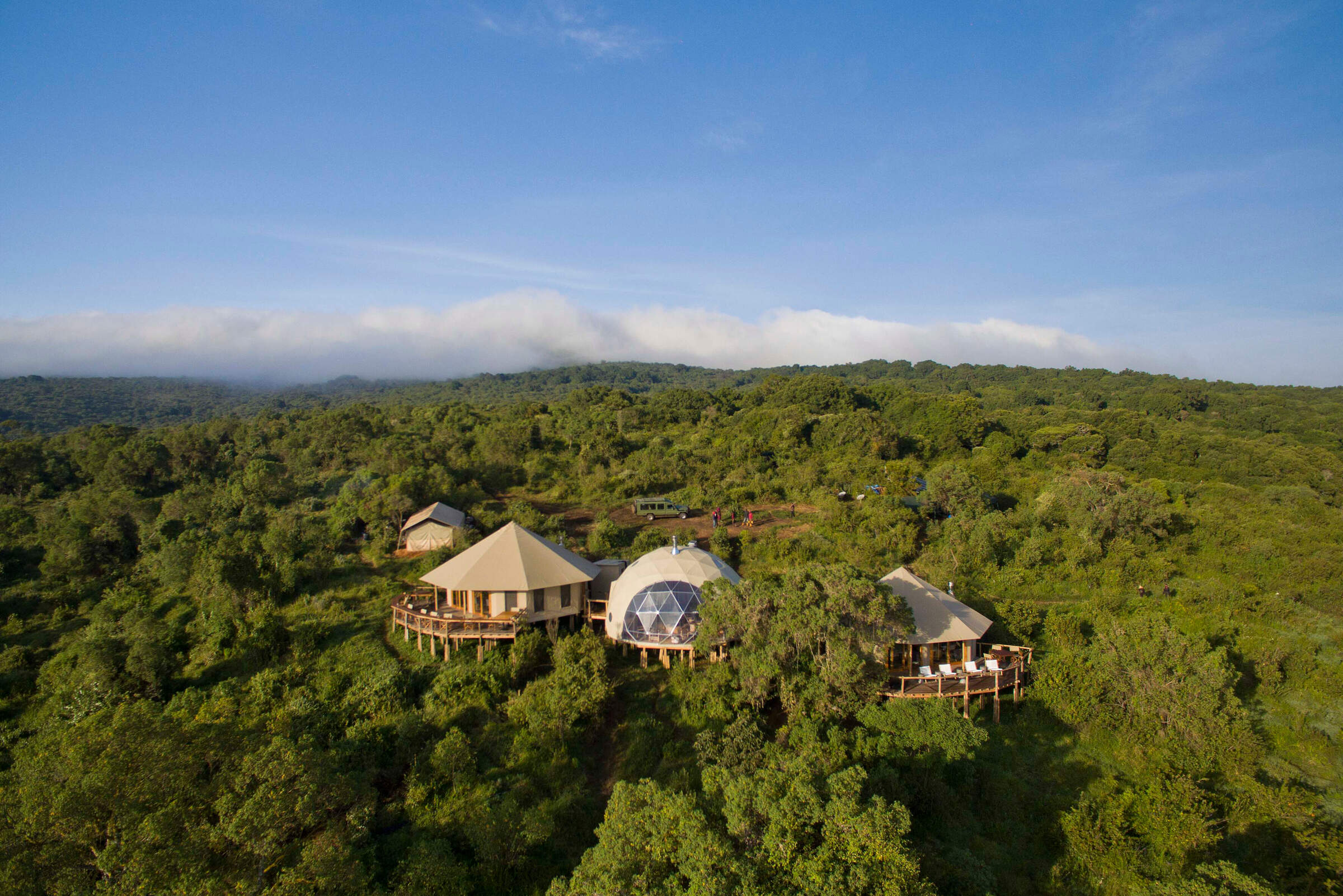
The Highlands
The Highlands is a unique camp near Olmoti Crater, north of Ngorongoro, offering drives, walks and cultural visits from a beautiful remote setting.

Ngorongoro Sopa Lodge
Situated on the eastern rim of the Ngorongoro Crater, with outstanding views, the Sopa Lodge is a somewhat dated, international-style hotel.

Rhino Lodge
Rhino Lodge is a simple, good-value lodge with a great location near the crater rim, in the Ngorongoro Conservation Area.
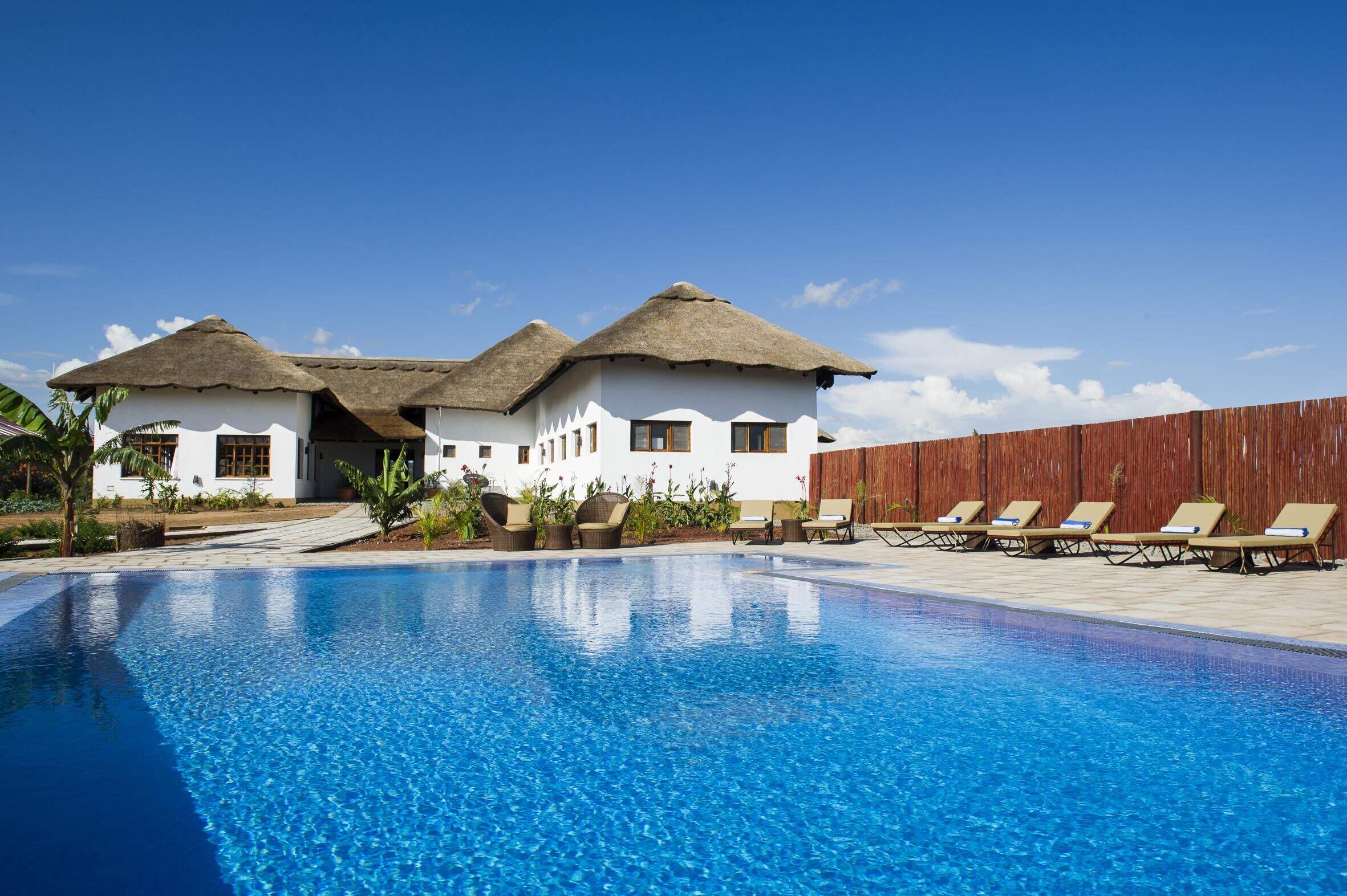
Farmhouse Lodge
Ngorongoro Farmhouse Lodge is set on a 750-acres working farm. Close to the NCA gate, it makes a great base for exploring the Crater.

Rhotia Valley Ttd. Lodge
Rhotia Valley is a simple lodge with a strong commitment to the local community, including a children's home, which guests may visit.
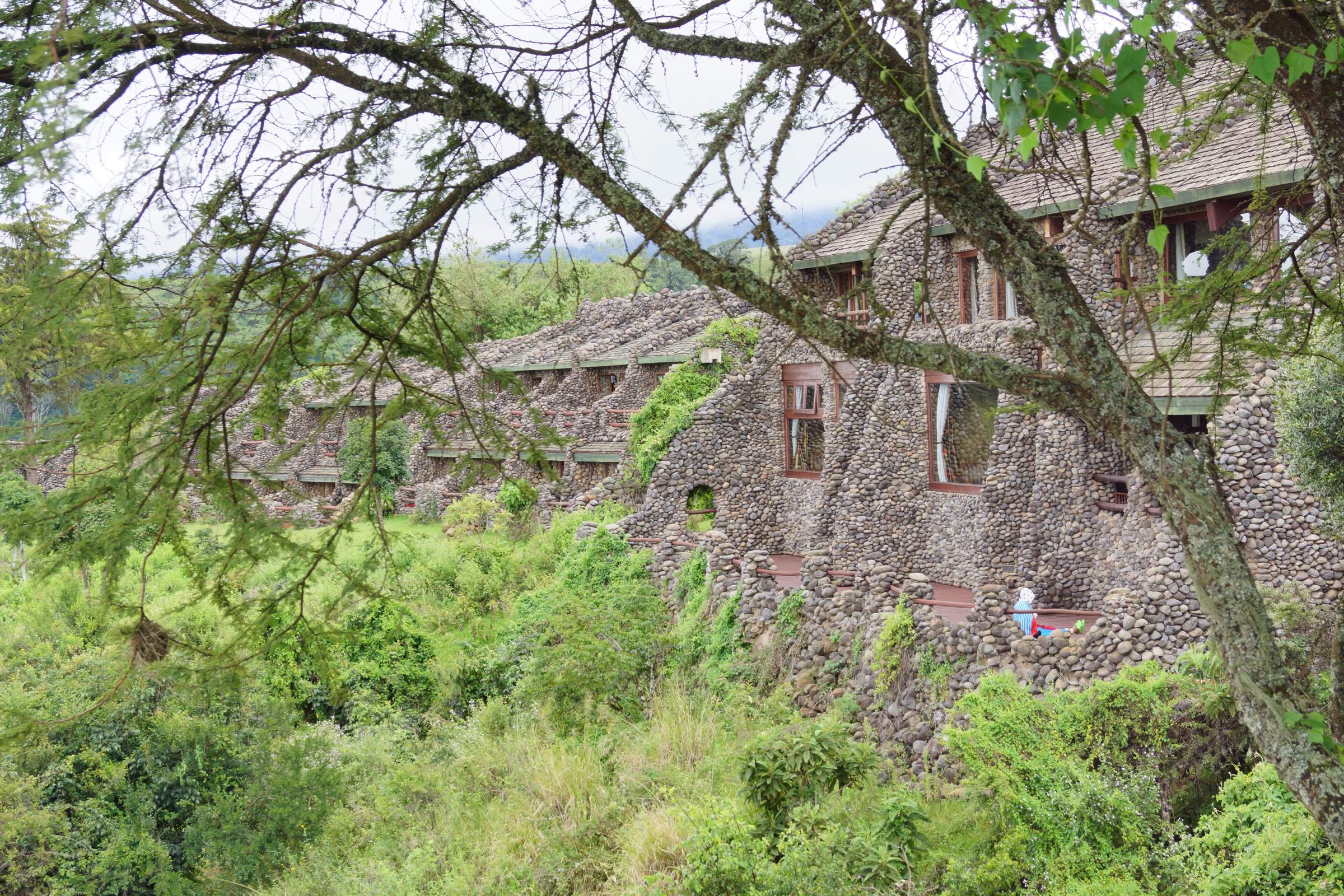
Ngorongoro Serena
The large, hotel-like Ngorongoro Serena Safari Lodge sits on the western rim of Ngorongoro Crater and has stunning views of the caldera.

Bougainvillea Lodge
Bougainvillea Safari Lodge provides an economical base from which to visit Lake Manyara or the Ngorongoro Crater.

The Manor
The Manor is a smart, family-friendly Cape-Dutch-style lodge, offering high-quality service and food in very comfortable surroundings.

Neptune Ngorongoro
Neptune Ngorongoro Luxury Lodge is a smart hilltop lodge with log-style cottages set close to the Ngorongoro Conservation Area.

Wildlife Lodge
Stay at the Ngorongoro Wildlife Lodge while on road safari in Northern Tanzania's spectacular Ngorongoro Crater area.
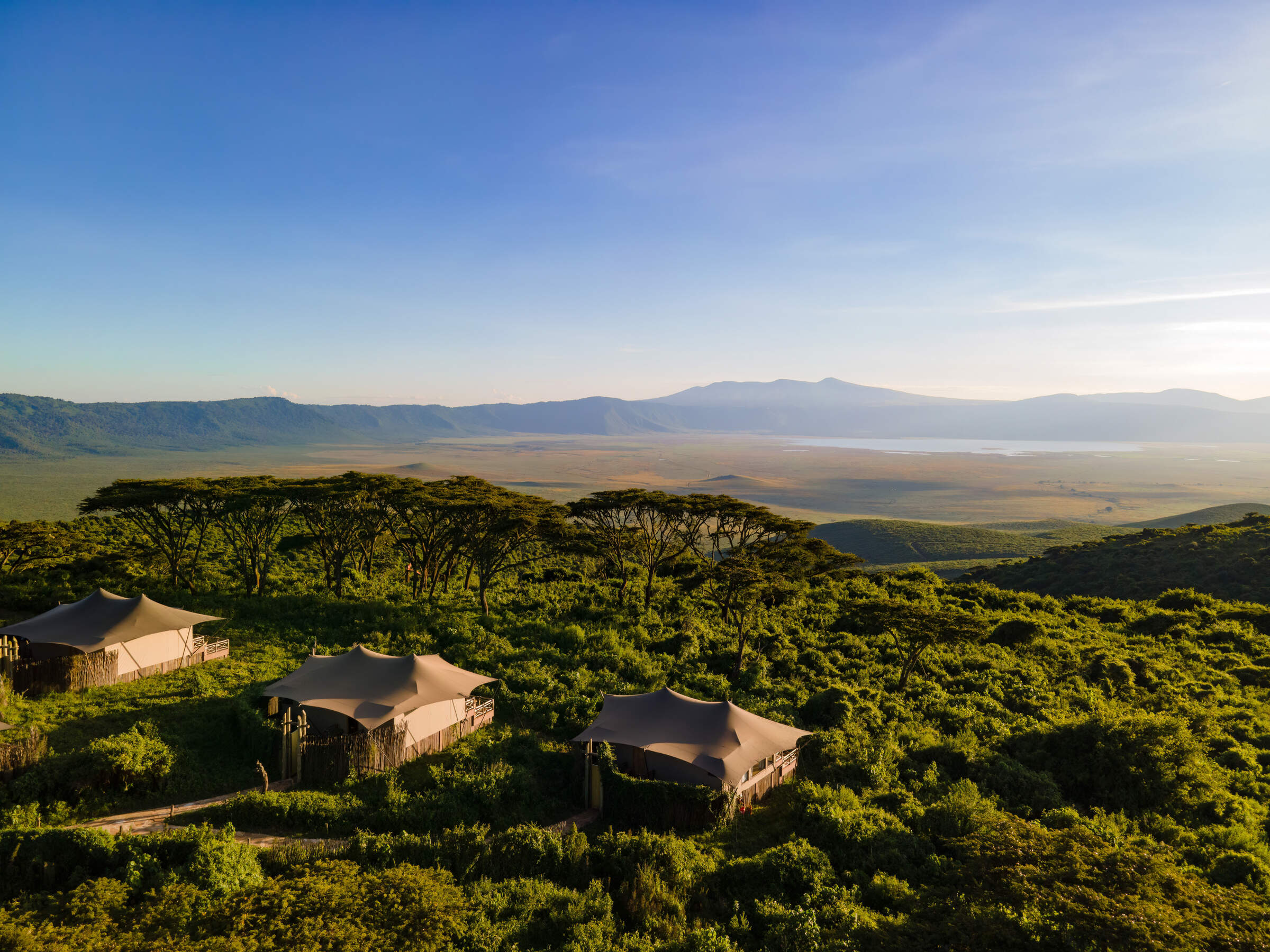
Crater's Edge
Craters Edge is an intimate luxury property on the north-eastern rim of the Ngorongoro Crater.
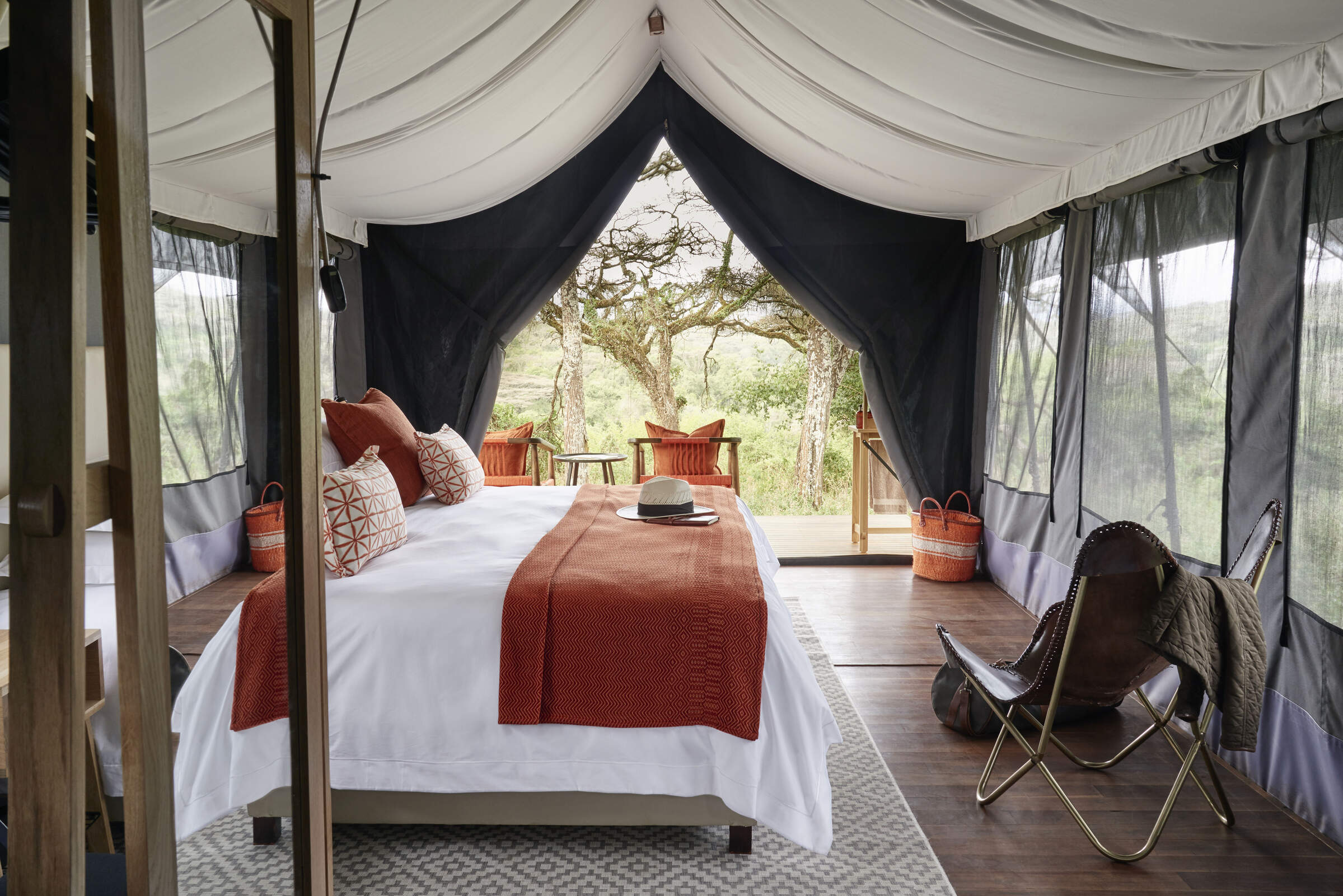
Sanctuary Ngorongoro Crater Camp
A small tented camp, located on the eastern side of the Ngorongoro Crater rim, with a five minute drive to crater descent gate.
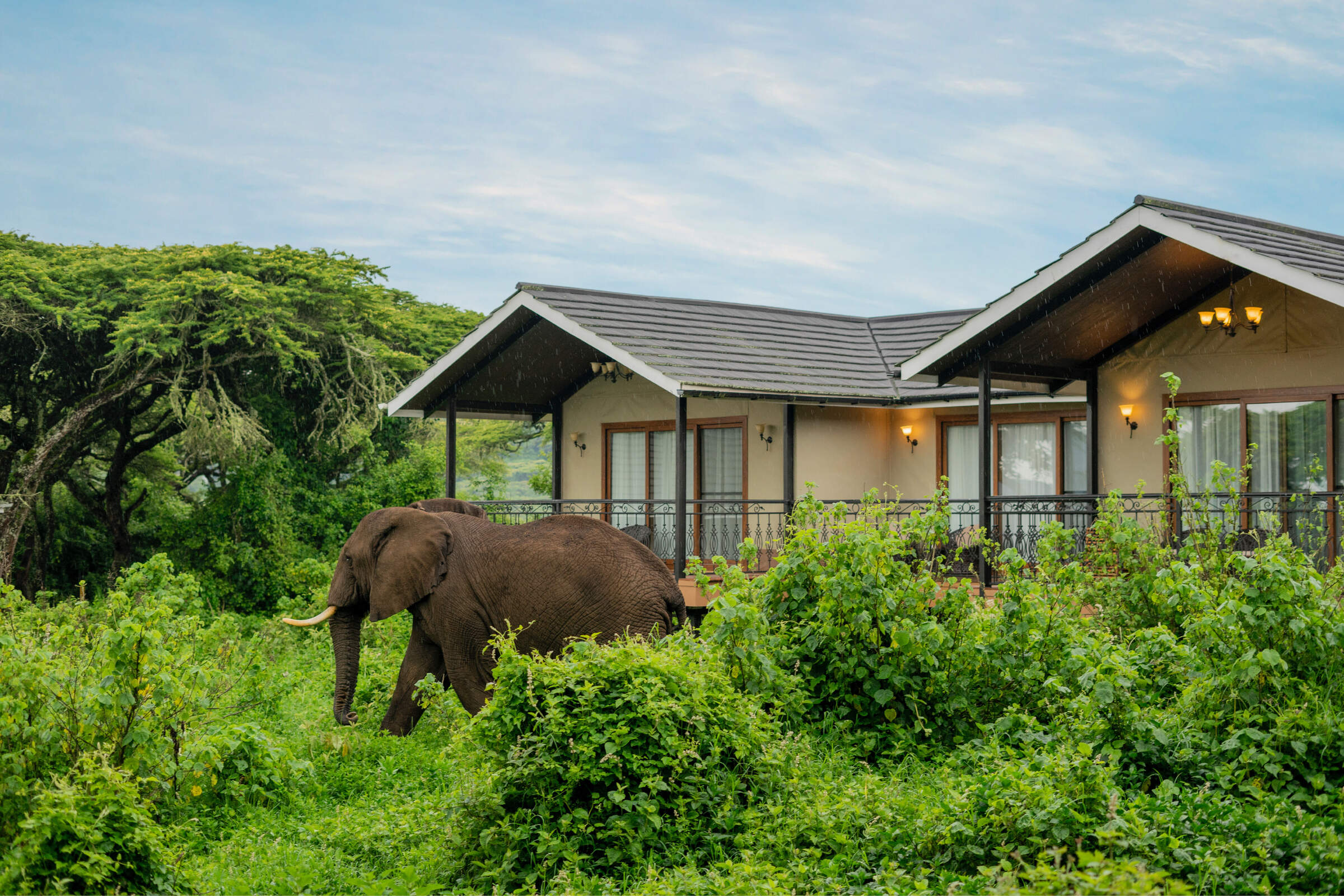
Lion's Paw
Located on the eastern rim of the Ngorongoro Crater, this camp has stunning panoramic views down onto the crater floor. A five minute drive to the nearest descent gate allows for early access into the crater, maximising on avoiding the large crowds

Ngorongoro Fly-Camp
Explore the remote northern rim of the Ngorongoro Crater on a two-day hike and spend the night in this small fly-camp.

Country Lodge
Country Lodge is conveniently located on the edge of Karatu and provides a comfortable base for exploring Ngorongoro Crater or Lake Manyara.
Our travellers’ wildlife sightings in Ngorongoro Crater
This is their success for sightings in Ngorongoro Crater. Click on a species for more detail. How we work this out.

100% success

93% success

90% success

89% success

88% success

88% success

86% success

81% success

68% success

56% success

14% success

11% success

8% success

0% success

0% success
When to go to Ngorongoro Crater
Ngorongoro Crater and Conservation Area experience distinct seasons.
The long dry season (June to October) offers excellent wildlife viewing as animals gather around water sources, ideal for spotting the Big Five. Short rains in November and December bring new life and mark the wildebeest calving season in Ndutu Plains.
January and February's short dry season is perfect for witnessing calving and predator activity. Long rains in March and April transform the landscape into a lush paradise, though game viewing can be challenging. It is important to note that due to elevation up on the Crater Rim and in the Crater Highlands, temperatures can be cool and weather misty and damp at any time of year, so dressing in layers is required.
Year-round, visitors can explore Maasai villages, archaeological sites like Olduvai Gorge, and enjoy hiking in Empakaai and Olmoti Craters.
Jan
Feb
Mar
Apr
May
Jun
Jul
Aug
Sep
Oct
Nov
Dec
Ngorongoro Crater in January
January marks the start of the short dry season. The Ngorongoro Crater floor is teeming with wildlife, offering excellent game viewing opportunities. The calving season for wildebeest begins in the nearby Ndutu Plains, attracting predators and providing exciting wildlife spectacles. Birdlife is vibrant, with both resident and migratory species present. The Lerai Fever Tree Forest is lush, attracting elephants and various bird species.
While the crater can be busy due to the New Year period, it quietens down later in the month. The Olduvai Gorge archaeological site is less crowded, allowing for a more intimate exploration of human evolution history. January offers good value for visitors, with pleasant weather and diverse wildlife sightings across the conservation area.
- Variable weather: clear, dry, or rainy
- Calving season in Ndutu Plains begins
- Excellent time for birding in the crater
- Great Migration gathers in southern areas
- Busy early month, quieter towards the end
Our view
A good time to visit, with pros & cons
Weather in January
Ngorongoro Crater in February
February in Ngorongoro Conservation Area is characterised by warm, dry weather, making it an ideal time for game drives and hiking. The Ngorongoro Crater remains a wildlife hotspot, with large herds of zebras, wildebeests, and gazelles on the crater floor. The calving season continues in the Ndutu Plains, offering incredible opportunities to witness newborn animals and intense predator activity.
Birdwatching is excellent, especially around Lake Magadi, where flamingos and other water birds congregate. The Empakaai and Olmoti Craters provide serene hiking experiences with stunning views. February is also a great time to visit Maasai villages, as the dry weather makes travel easier. The Olduvai Gorge and Laetoli Footprints sites are less crowded, allowing for a more in-depth exploration of these significant archaeological areas.
- Hot and dry weather in the conservation area
- Peak of wildebeest calving in Ndutu Plains
- Crater and southern areas busy with tourists
- Lush green landscapes throughout the region
- Increased predator activity due to calving
Our view
A very good time to visit
Weather in February
Ngorongoro Crater in March
March sees the beginning of the long rainy season, though exact timing varies yearly. The Ngorongoro Crater remains accessible, with lush vegetation attracting diverse wildlife. As migratory animals start to disperse, game viewing can become more challenging but rewarding. The wildebeest migration may still be visible in parts of the conservation area. Lake Magadi and other water sources become increasingly important for wildlife, offering excellent birdwatching opportunities. The Lerai Fever Tree Forest is particularly beautiful during this time.
March is ideal for visiting the Olduvai Gorge, as the slightly wetter conditions can reveal fossils and artifacts. Cultural experiences at Maasai villages continue to be enriching. Some lodges may start to close for renovations, so it's advisable to check availability in advance.
- Hot with building humidity before rains
- Wildlife viewing varies as rains approach
- Quieter tourist season with lower rates
- Good for birding with migrant species present
- Great Migration begins to move northward
Our view
A good time to visit, with pros & cons
Weather in March
Ngorongoro Crater in April
April is usually the wettest month in Ngorongoro area, with heavy rains transforming the landscape. The Ngorongoro Crater floor becomes a lush paradise, with wildflowers blooming across the grasslands. Wildlife viewing can be challenging due to the dense vegetation, but patient observers can witness unique behaviours. Lake Magadi swells, attracting numerous water birds, including flamingos. The Lerai Fever Tree Forest is at its most verdant, providing shelter for various animals.
April is an excellent time for photography, with dramatic skies and vibrant landscapes. The Olduvai Gorge and other archaeological sites may have limited access due to rain. While some lodges close during this period, those that remain open offer significantly reduced rates, making it an affordable time to visit for budget-conscious travellers willing to brave wetter conditions.
- Heavy rains with impressive thunderstorms
- Some lodges may close due to accessibility
- Lowest rates and very few other tourists
- Lush, green landscapes in the crater
- Not the best time game viewing due to dispersal
Our view
This is not a great time to visit
Weather in April
Ngorongoro Crater in May
As the month of May progresses, there begins a gradual decrease in rainfall, though the landscape remains lush and green. The Ngorongoro Crater floor is teeming with life, as animals take advantage of the abundant vegetation. Birdwatching is exceptional, particularly around Lake Magadi and the Lerai Fever Tree Forest. The Empakaai and Olmoti Craters offer stunning hiking experiences, with waterfalls and streams at their most impressive, though it can be muddy and slippery underfoot. Wildlife viewing improves as the month progresses and vegetation begins to thin.
May is an excellent time to visit the Olduvai Gorge and Laetoli Footprints, as the slightly damp conditions can reveal hidden fossils. Cultural visits to Maasai villages provide insights into how local communities adapt to seasonal changes. With fewer tourists, May offers a more intimate safari experience and the opportunity to enjoy Ngorongoro's beauty in relative solitude.
- Heavy rains continue with dramatic skies
- Quiet month, ideal for avoiding crowds
- Crater floor lush and green with long grass
- Wildlife more dispersed, fewer sightings
- Lower prices make safaris more affordable
Our view
This is not a great time to visit
Weather in May
Ngorongoro Crater in June
June marks the beginning of the dry season in Ngorongoro, with clearer skies and cooling temperatures. The Ngorongoro Crater becomes a wildlife haven as animals concentrate around remaining water sources. Game drives in the crater offer excellent opportunities to spot the Big Five. The Ndutu Plains start to dry out, concentrating wildlife and making them easier to spot.
Birdwatching remains rewarding, especially around Lake Magadi. The Lerai Fever Tree Forest provides a beautiful backdrop for wildlife photography. June is an ideal time for hiking in the Empakaai and Olmoti Craters, with comfortable temperatures and clearer trails. The Olduvai Gorge and other archaeological sites are easily accessible. As the shoulder tourist season begins, lodges reopen and offer a wide range of accommodation options.
- Variable weather: clear, dry, or some rain
- Wildlife starts to concentrate near water
- Parks still green but grass getting shorter
- Moderate visitor numbers in the crater
- Good value with shoulder season prices
Our view
A good time to visit, with pros & cons
Weather in June
Ngorongoro Crater in July
July is a prime month for visiting Ngorongoro, with dry weather and excellent wildlife viewing. The Ngorongoro Crater floor is bustling with activity as large herds of wildebeest, zebras, and gazelles graze on the short grass. Predator sightings, including lions and hyenas, are frequent. Lake Magadi attracts numerous flamingos and other water birds. The Lerai Fever Tree Forest provides shade for elephants and various bird species.
July is perfect for hiking adventures to the Empakaai and Olmoti Craters, offering breathtaking views. The Olduvai Gorge and Laetoli Footprints sites are easily accessible, providing fascinating insights into human evolution. Cultural visits to Maasai villages are particularly rewarding. However, the excellent conditions mean the area can get crowded, especially in the crater, so early bookings are essential.
- Dry and warm days, chilly mornings/evenings
- Excellent wildlife viewing in the crater
- Peak tourist season with high visitor numbers
- Higher prices due to prime conditions
- Book well in advance for crater lodges
Our view
Fantastic: the very best time to visit
Weather in July
Ngorongoro Crater in August
August in Ngorongoro offers superb safari conditions with clear skies and comfortable temperatures. The Ngorongoro Crater remains the focal point, with dense wildlife populations and excellent visibility. Predator sightings are frequent, with lions, leopards, and cheetahs often spotted. Lake Magadi is a hive of activity, with large flocks of flamingos creating a pink spectacle. The Lerai Fever Tree Forest provides a picturesque setting for wildlife photography.
August is ideal for exploring the Empakaai and Olmoti Craters on foot, with stunning vistas and diverse flora. The Olduvai Gorge and other archaeological sites offer fascinating excursions. However, August is peak season, so the crater can be crowded, and advance bookings are crucial for accommodations and activities.
- Dry weather continues, chilly mornings
- Superb wildlife viewing opportunities
- Very busy, especially in the crater area
- Advance booking essential for accommodations
- Consider exploring less crowded areas
Our view
Fantastic: the very best time to visit
Weather in August
Ngorongoro Crater in September
September in Ngorongoro offers excellent safari conditions as the dry season continues. The Ngorongoro Crater floor teems with wildlife, concentrated around remaining water sources. This month provides some of the best opportunities to spot the Big Five in close proximity. Lake Magadi attracts numerous flamingos and other water birds, creating spectacular scenes. The Lerai Fever Tree Forest is a haven for elephants and various bird species.
September is ideal for hiking adventures to the Empakaai and Olmoti Craters, with clear skies offering breathtaking views. The Olduvai Gorge and Laetoli Footprints sites are easily accessible, providing fascinating insights into human evolution. Cultural visits to Maasai villages remain rewarding. While still part of the high season, September tends to see slightly fewer visitors than July and August, especially as the month progresses, offering a more relaxed safari experience.
- Fantastic wildlife viewing continues
- Parks slightly quieter than peak months
- Crater floor becomes drier, less vegetation
- Cool mornings and evenings, warm days
- Prices remain high due to good conditions
Our view
Fantastic: the very best time to visit
Weather in September
Ngorongoro Crater in October
October in Ngorongoro is nearing the end of the dry season, providing excellent wildlife viewing opportunities. The Ngorongoro Crater floor is teeming with animals concentrated around diminishing water sources, offering frequent sightings of lions, elephants, and rhinos. Lake Magadi becomes a crucial water source, attracting diverse birdlife. The Lerai Fever Tree Forest provides essential shade for wildlife.
October is ideal for hiking in the Empakaai and Olmoti Craters, with clear skies offering stunning views. The Olduvai Gorge and other archaeological sites are easily accessible. With fewer tourists than peak months, October offers a balance of excellent wildlife viewing and more moderate visitor numbers.
- Mostly dry with chance of occasional storms
- Excellent game viewing in drier landscape
- Lower visitor numbers than earlier months
- Very good time to visit the crater
- Consider hot air balloon safaris for views
Our view
A very good time to visit
Weather in October
Ngorongoro Crater in November
November in Ngorongoro typically sees the start of the short rains, bringing new life to the area. The Ngorongoro Crater floor begins to green, attracting diverse wildlife. Game viewing remains good, with animals still concentrated around water sources. Lake Magadi and other water bodies start to fill, attracting migratory birds. The Lerai Fever Tree Forest becomes lusher, providing shelter for various species.
November offers unique photographic opportunities with dramatic skies and rejuvenated landscapes. Cultural experiences at Maasai villages provide insights into seasonal adaptations. November can offer great value for money, with the chance to experience both dry and wet season conditions.
- Variable weather: clear, dry, or some rain
- Parks quieter, prices lower than peak season
- Good wildlife sightings as short rains begin
- Early migrants arrive in the crater area
Our view
A good time to visit, with pros & cons
Weather in November
Ngorongoro Crater in December
December in Ngorongoro brings a mix of short rains and dry periods, creating a dynamic environment. The Ngorongoro Crater floor is lush and green, attracting diverse wildlife. Game viewing is excellent, with good chances of spotting the Big Five. Lake Magadi fills further, hosting numerous flamingos and water birds. The Lerai Fever Tree Forest is vibrant with new growth.
December marks the beginning of the wildebeest arriving into the nearby Ndutu Plains, attracting predators. Birdwatching is particularly rewarding with both resident and migratory species present. The Olduvai Gorge and other archaeological sites offer fascinating excursions between rain showers. While the festive season brings more visitors, early December can offer good value. Advance booking is essential for the holiday period.
- Variable weather with occasional rain
- Good game viewing in the crater
- Quiet early month, very busy end of month
- Prices rise sharply for holiday period
- Great Migration starts returning to the south
Our view
A good time to visit, with pros & cons
Weather in December
Ngorongoro Crater: In detail
Ngorongoro Crater
In 1951, the enormous Serengeti National Park was declared, encompassing the present Serengeti, plus the Ngorongoro area and surrounding Crater Highlands.
Today, this is split into the present-day Serengeti National Park, and the current Ngorongoro Conservation Area. The conservation area now encompasses a large area of the short-grass plains on the southern side of the Serengeti Plain and also the Ngorongoro Highlands, a range of largely extinct ancient volcanoes on the west side of the Great Rift Valley.
The showpiece of the conservation area is undoubtedly the Ngorongoro Crater which was created when a large volcano exploded and collapsed on itself two to three million years ago. It was declared a UNESCO World Heritage Site in 1978 and is the largest intact volcanic caldera in the world.
It measures about 16-19km in diameter, with walls of 400-610m in height. However you measure it, the Crater is a strong candidate for any list of the world's greatest natural wonders. It is renowned both for its geological splendour, and for being a natural reserve which is home to some of the densest large mammal populations found anywhere in Africa.
Ngorongoro wildlife safaris
You are guaranteed to see large concentrations of game on any Ngorongoro safari. The mineral-rich floor of this spectacular bowl is largely flat, open and covered in nutritious grasses – much to the liking of large herds of zebra and wildebeest, which graze here. These extensive open plains are also home to herds of buffalo, Thomson's gazelle, Grant's gazelle and tsessebe (often called topi). You'll also find East Africa's best population of black rhino here, which are often seen in open grasslands. Breeding herds of elephant pass through the Ngorongoro Crater itself only rarely, but you will see a scattering of old bulls, including some of the biggest tuskers left alive in Africa today. The only surprising absentees from the Crater are impala and giraffe; it is thought that this is perhaps because of the lack of open woodlands and browsing species of trees which these two tend to thrive on.
The high numbers of herbivores supports the densest populations of predators found anywhere in Africa. The reliable presence of these predators has helped to make an Ngorongoro safari so popular. The Crater's lion population varies significantly over time, the one constant being their complete disregard of vehicles; they will hunt within yards of a vehicle, and when exhausted even seek shade beside them. Spotted hyenas are even more common here, often competing with the lion, and there's are a small but growing number of cheetah. Leopards are around, especially in the vicinity of the Lerai Forest. Side-striped and the lovely golden jackal are often seen skulking around, whilst bat-eared foxes are a rarer sight.
Having waxed lyrical about the Ngorongoro Crater's wildlife, the reality of safaris there isn't always as amazing. The sheer number of vehicles in the crater, combined with its open environment, can destroy any sense of wilderness. It can feel crowded and busy. Often, this will be mitigated by amazing game sightings, but not always. So whilst the Ngorongoro's wildlife is stupendous, the Ngorongoro Crater safari experience isn't always as good as you might imagine.
Access to Ngorongoro Safaris
Another alternative is to fly to Manyara airstrip, which is about an hour from the Crater. Depending on where you’re staying – you may be met by the lodge, or picked up by a private driver guide.
Empakaai Crater
Olduvai Gorge
Map of Ngorongoro Crater
Choices for where to stay in Ngorongoro Crater

Ngorongoro Crater: Safaris
As you can see from the extensive list below, we offer plenty of Tanzania safari holidays including the Ngorongoro Crater. They range from a duration of four nights split between two lodges, to two-week trips. Because the parks in northern Tanzania are relatively close to each other, it can be a good decision to book a private vehicle and guide to travel between them, which will give you great flexibility. Possible destinations to combine with a trip to the Ngorongoro Crater are for instance Lake Manyara and the Serengeti migration area.

Gorillas and Serengeti Safari
11 days • 4 locations
KIGALI AIRPORT TO KILIMANJARO AIRPORT
Combine three iconic experiences – mountain gorillas in Rwanda, and the Serengeti plains and awe-inspiring Ngorongoro Crater in Tanzania.
US$14,310 - US$15,540 per person

Firefinch Drive-Fly Safari
9 days • 3 locations
KILIMANJARO AIRPORT TO KILIMANJARO AIRPORT
Enjoy a combination of privately guided and shared game drives during this good-value exploration of northern Tanzania. Explore game-dense regions from three comfortable bases which offer a variety of activities.
US$7,720 - US$14,200 per person

Flufftail Guided Safari
10 days • 3 locations
KILIMANJARO AIRPORT TO KILIMANJARO AIRPORT
Stay in three unique camps as you safari across the Ngorongoro Crater and the iconic Serengeti Plains with your private guide and 4WD vehicle: a trip of comfort and autonomy, with excellent wildlife.
US$12,990 - US$18,900 per person

Tinkerbird Fly-in Safari
8 days • 4 locations
KILIMANJARO AIRPORT TO KILIMANJARO AIRPORT
Explore Tanzania’s famous northern circuit in Tarangire National Park, the Ngorongoro Conservation Area and the Serengeti National Park. Four smart sister camps offer a high level of care, first-class guiding and a wide range of activities.
US$10,410 - US$14,140 per person

Fringe-eared Oryx Fly-in Safari
7 days • 3 locations
KILIMANJARO AIRPORT TO KILIMANJARO AIRPORT
Stay in three superbly positioned camps during this exploration of Tanzania’s famous northern circuit. Excellent views over the surrounding areas, relatively remote locations and game-rich habitat make for an exciting and varied safari experience.
US$7,300 - US$14,860 per person

Marabou Stork Fly-in Safari
13 days • 5 locations
KILIMANJARO AIRPORT TO DAR ES SALAAM AIRPORT
Four luxurious camps enable exploration of Tanzania’s north and southern regions. With a range of land- and water-based activities available throughout, decidedly comfortable accommodation and applicable long-stay discounts, this adventurous safari is excellent value.
US$19,410 - US$25,560 per person

Regal Sunbird Fly-in Safari
12 days • 5 locations
KILIMANJARO AIRPORT TO DAR ES SALAAM AIRPORT
Experience the highlights of Tanzania with a safari in the country’s famous northern parks followed by historic Stone Town and the palm-fringed beaches of Zanzibar, staying in high-quality accommodation throughout.
US$10,570 - US$16,370 per person

Lovebird Fly-in Safari
5 days • 2 locations
KILIMANJARO AIRPORT TO KILIMANJARO AIRPORT
Visit two consistently impressive wildlife destinations during this excellent-value safari in northern Tanzania. Enjoy a range of walks and cultural visits from sister camps at the Ngorongoro Crater and in the heart of the Serengeti.
US$3,520 - US$4,900 per person
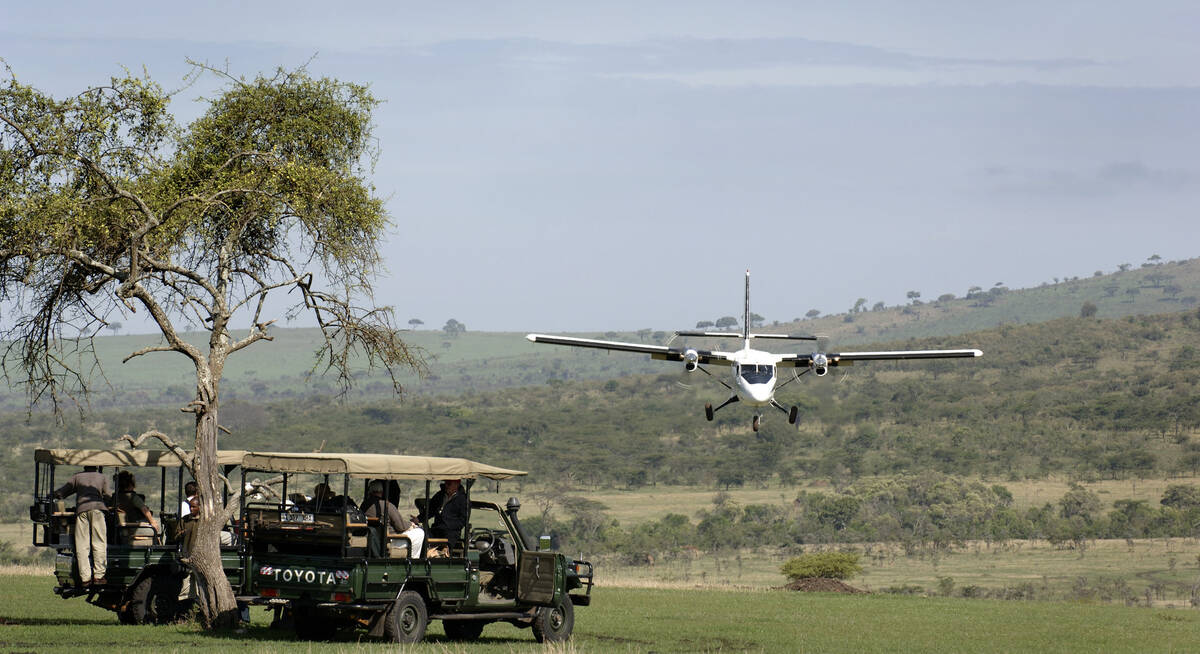
Avocet Fly-in Safari
7 days • 3 locations
KILIMANJARO AIRPORT TO KILIMANJARO AIRPORT
This luxurious safari explores three iconic African reserves from exclusive lodges in unbeatable locations. A very high standard of food, care and guiding ensure that you can focus on this amazing experience.
US$10,520 - US$15,860 per person

Hadeda Ibis Guided Safari
7 days • 3 locations
KILIMANJARO AIRPORT TO KILIMANJARO AIRPORT
This great-value safari, in a private 4WD with your own driver-guide, journeys through the stunning landscapes of northern Tanzania’s Great Rift Valley, focusing on its three top national parks.
US$4,980 - US$6,110 per person

Secretary Bird Fly-in Safari
8 days • 4 locations
KILIMANJARO AIRPORT TO KILIMANJARO AIRPORT
Chosen for comfort and relaxation as much as for its range of activities, this safari makes for a leisurely trip featuring stunning accommodation and swift access to many of northern Tanzania’s best wildlife regions.
US$14,030 - US$18,080 per person
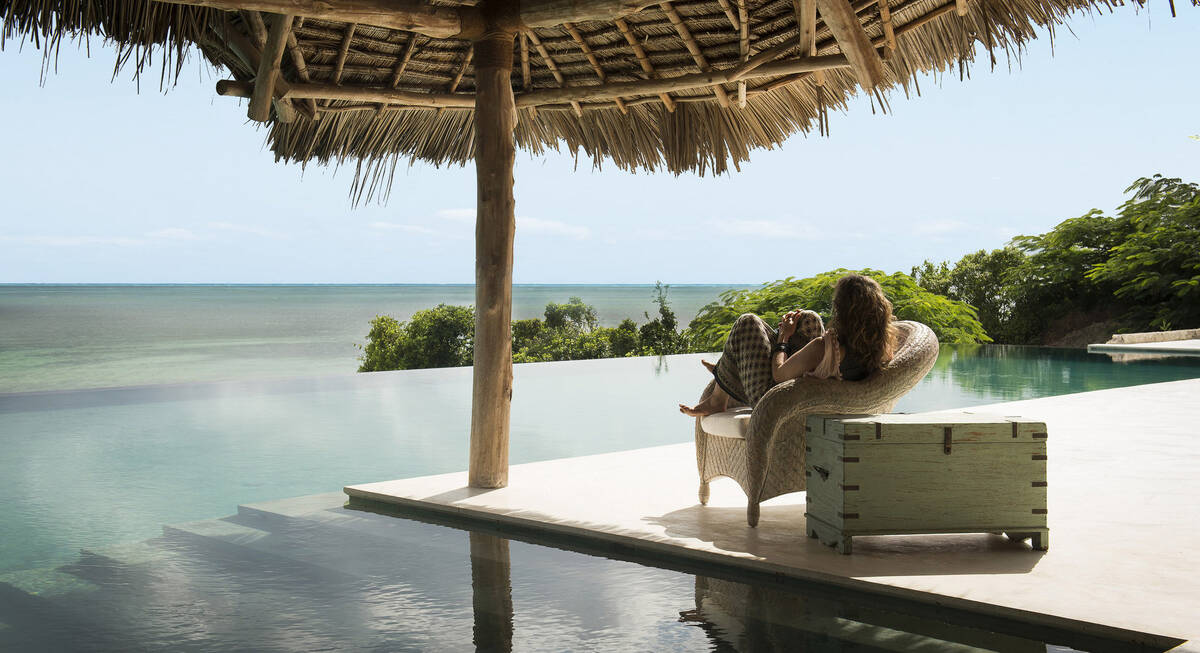
Dik Dik Safari
12 days • 4 locations
KILIMANJARO AIRPORT TO DAR ES SALAAM AIRPORT
Combine safari with peace and relaxation on Zanzibar’s white-sand shores during this exploration of Tanzania. Stay in three high-quality sister camps within Tarangire National Park, Ngorongoro Conservation Area and Serengeti National Park before concluding with a stay on Michamvi Peninsula.
US$9,920 - US$15,130 per person
Top 20 lodges and safari camps around Ngorongoro Crater
No accommodation or camping facilities exist within Ngorongoro Crater, but a handful of upmarket lodges and camps are perched on the rim, most offering superb views to the crater floor. Ask us for more details of what's likely to suit you best!

Plantation Lodge
A relaxed base between Ngorongoro and Lake Manyara, Plantation Lodge has lush grounds and offers good value and high standards.

Gibbs Farm
Located not far from the Ngorongoro Conservation Area, Gibb's Farm has comfy rooms, homegrown food and strong community links

Lemala Ngorongoro
Lemala Ngorongoro is a small, comfortable tented camp on the rim of the Ngorongoro Crater with lovely walking in the vicinity.

Entamanu Ngorongoro
Opened in 2016, Entamanu Ngorongoro is a small camp high on the Crater rim with views towards the crater and the plains of the Serengeti.

Crater Lodge
The ultra-luxurious Ngorongoro Crater Lodge is perched in a spectacular location on the edge of the Ngorongoro Crater.

The Highlands
The Highlands is a unique camp near Olmoti Crater, north of Ngorongoro, offering drives, walks and cultural visits from a beautiful remote setting.

Rhino Lodge
Rhino Lodge is a simple, good-value lodge with a great location near the crater rim, in the Ngorongoro Conservation Area.

Ngorongoro Sopa Lodge
Situated on the eastern rim of the Ngorongoro Crater, with outstanding views, the Sopa Lodge is a somewhat dated, international-style hotel.

Farmhouse Lodge
Ngorongoro Farmhouse Lodge is set on a 750-acres working farm. Close to the NCA gate, it makes a great base for exploring the Crater.

Rhotia Valley Ttd. Lodge
Rhotia Valley is a simple lodge with a strong commitment to the local community, including a children's home, which guests may visit.

Ngorongoro Serena
The large, hotel-like Ngorongoro Serena Safari Lodge sits on the western rim of Ngorongoro Crater and has stunning views of the caldera.

Bougainvillea Lodge
Bougainvillea Safari Lodge provides an economical base from which to visit Lake Manyara or the Ngorongoro Crater.
Excursions in Ngorongoro Crater
Optional, extra day-trips and excursions that are possible while you’re staying in Ngorongoro Crater. Talk to us: these excursions are usually best arranged before you go.

Crater Rim Walk
Half day - two hour walk
For some fantastic views, and the chance to see flora and fauna up close, take a walk along the rim of the magnificent Ngorongoro Crater. Led by an experienced safari guide and accompanied by an armed ranger, you will be able to take in the scale and beauty of the landscape from a different perspective.
More about Crater Rim Walk
Empakaai Crater Hike
Half day, two - three hour walk
Spend a half day hiking through the Empakaai Crater, in the Highlands area of the Ngorongoro Conservation Area (NCA), led by an experienced guide and accompanied by a ranger.
More about Empakaai Crater Hike
Lake Manyara Safari
Half-day or full-day
Set against the spectacular backdrop of the Rift Valley escarpment, Lake Manyara National Park makes a great safari destination. Here, along with elephant herds and plains game, you’ll find jungle-like forests that are home to blue monkeys, a soda lake tinged pink by flamingos and some of Tanzania’s best birding.
More about Lake Manyara Safari
Lake Manyara Treetop Walkway
Usually one hour
Experience the forest of Lake Manyara National Park from a whole new perspective – high up in the trees. The first suspended walkway in Tanzania, it stretches underneath the canopy for 370m between the mahogany and fig trees, giving intrepid visitors a unique view of the surrounding flora and fauna.
More about Manyara Treetop Walk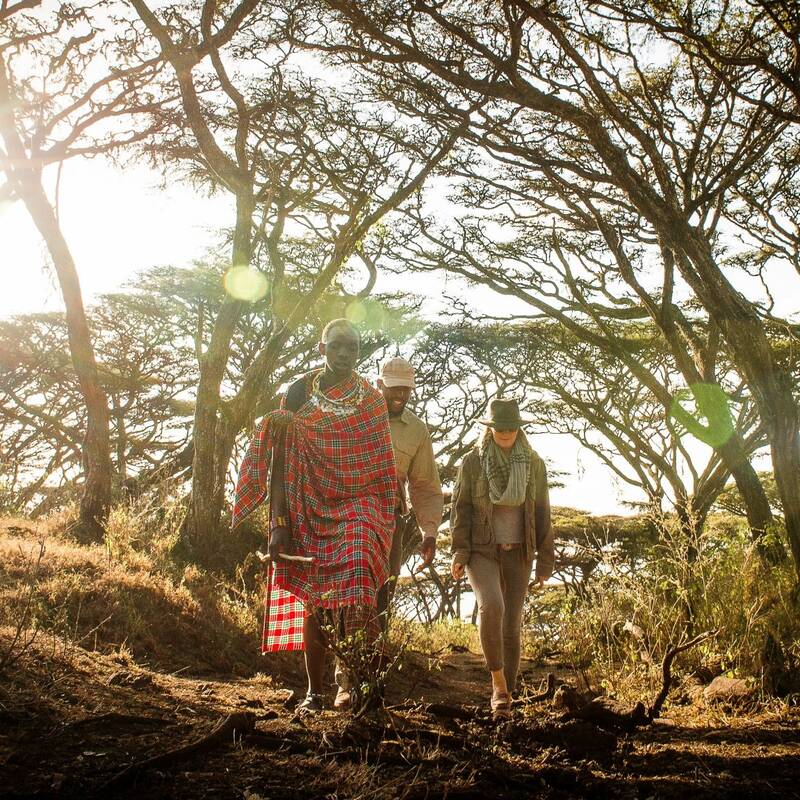
Maasai Village Visit
Two to three hours - afternoon activity
Gain an authentic insight into Maasai life, visiting one of the villages in the highland areas of the Ngorongoro Crater. Far from being a commercialised, contrived experience, this is a genuine opportunity to visit a real village, and to be welcomed by the villagers.
More about Maasai Village Visit
Mto Wa Mbu Village Walk
Two to three hours
Discover the nuances of day-to-day life in the large Tanzanian village of Mto Wa Mbu with a knowledgeable local guide. This is not a village set up for tourists – Mto Wa Mbu is a real community and offers a chance to see a side of Tanzania that many visitors pass by.
More about Village Walk
Olduvai Gorge visit
One - two hours
See for yourself the renowned archaeological site of Olduvai (or Oldupai) Gorge, which lies en route between the Ngorongoro Crater and the Serengeti National Park. Famed for the discoveries of early hominin remains as well as the Laetoli Footprints, the site offers beautiful views, an engaging museum and potentially the opportunity to visit an active dig.
More about Olduvai Gorge visit
Olmoti Crater walk
Half day - two to three hour walk
Follow an ancient Maasai cattle trail on this private hike up the Olmoti Crater, led by an experienced guide and accompanied by an armed ranger. The crater may not compete in size with the neighbouring Ngorongoro Crater, but the birding is good, the mountain views wonderful, and the array of ferns is a botanist’s dream.
More about Olmoti Crater walk
Safari in Ngorongoro Crater
Typically a full day
To drive into the Ngorongoro Crater is to immerse yourself in a renowned wildlife park. Prides of lion and clans of hyena patrol amongst herds of zebra, wildebeest and Thomson’s gazelle, whilst flocks of crowned cranes keep out the way of jackals. Come for elephants with big tusks, too. And then there are the rhino…
More about Ngorongoro Crater safari
Looking for inspiration on where to travel next?
Visit our trip chooser to explore your options and find inspiration for your perfect African adventure
Inspire meVideos from Ngorongoro Crater
Watch these videos to learn more about Ngorongoro Crater
